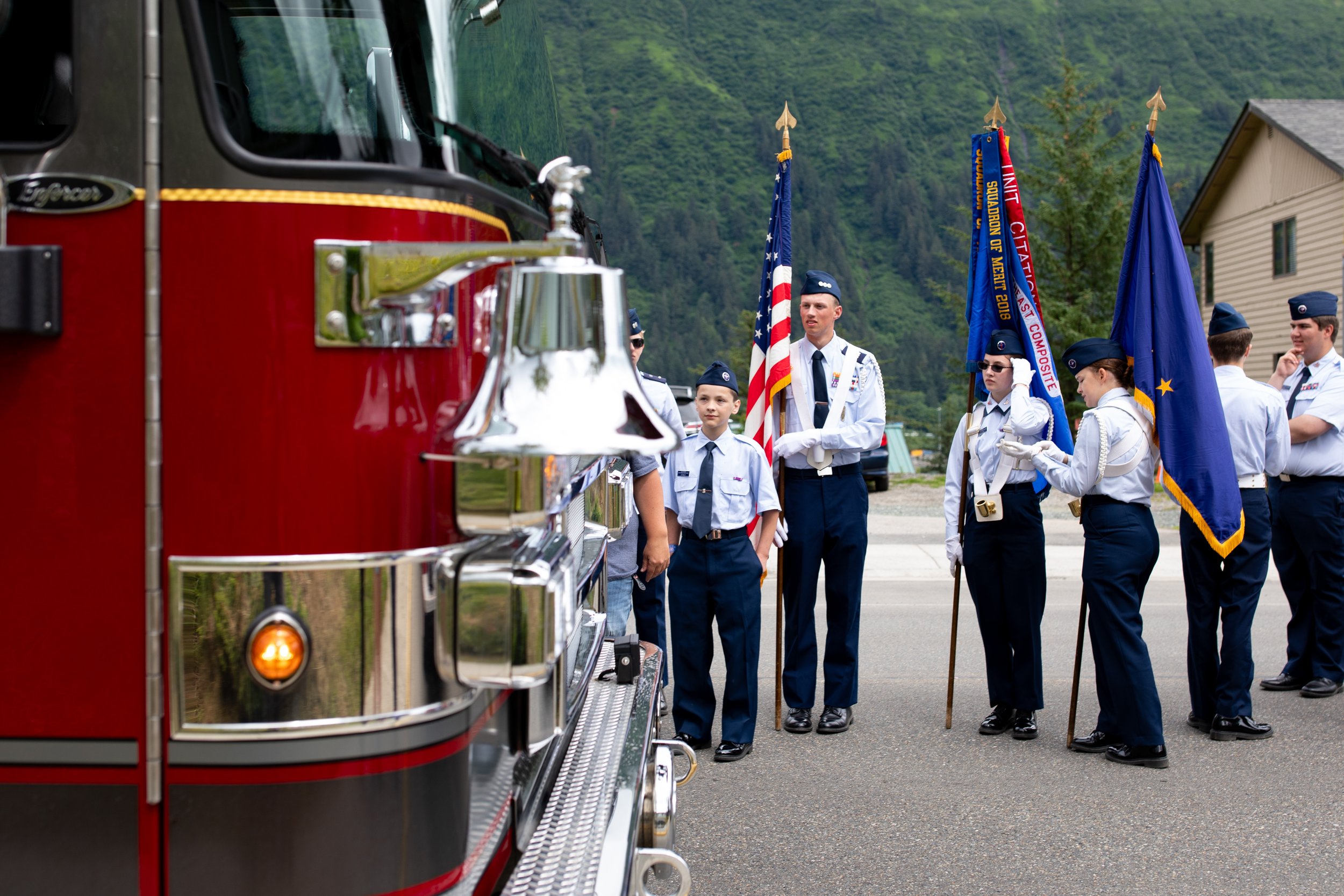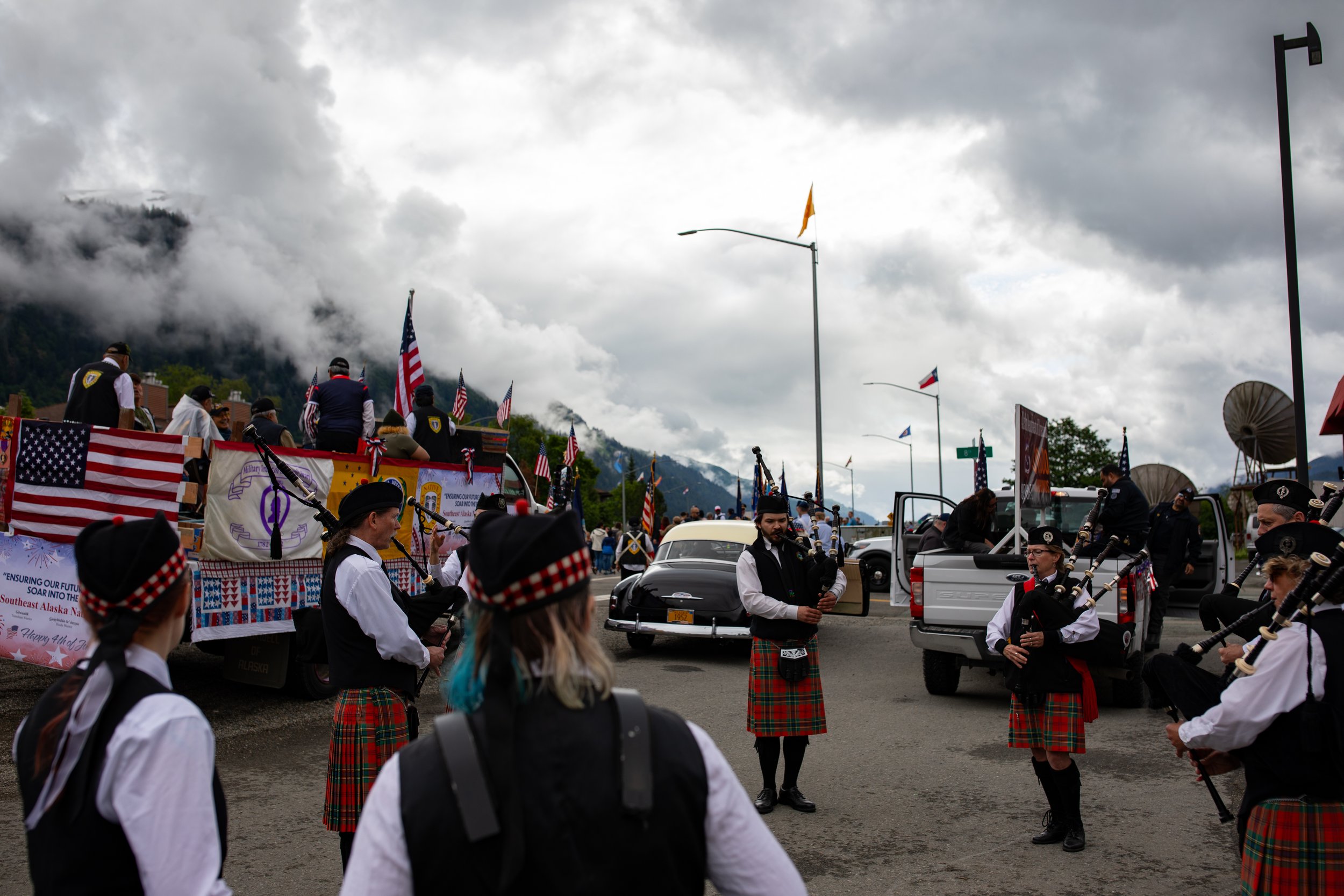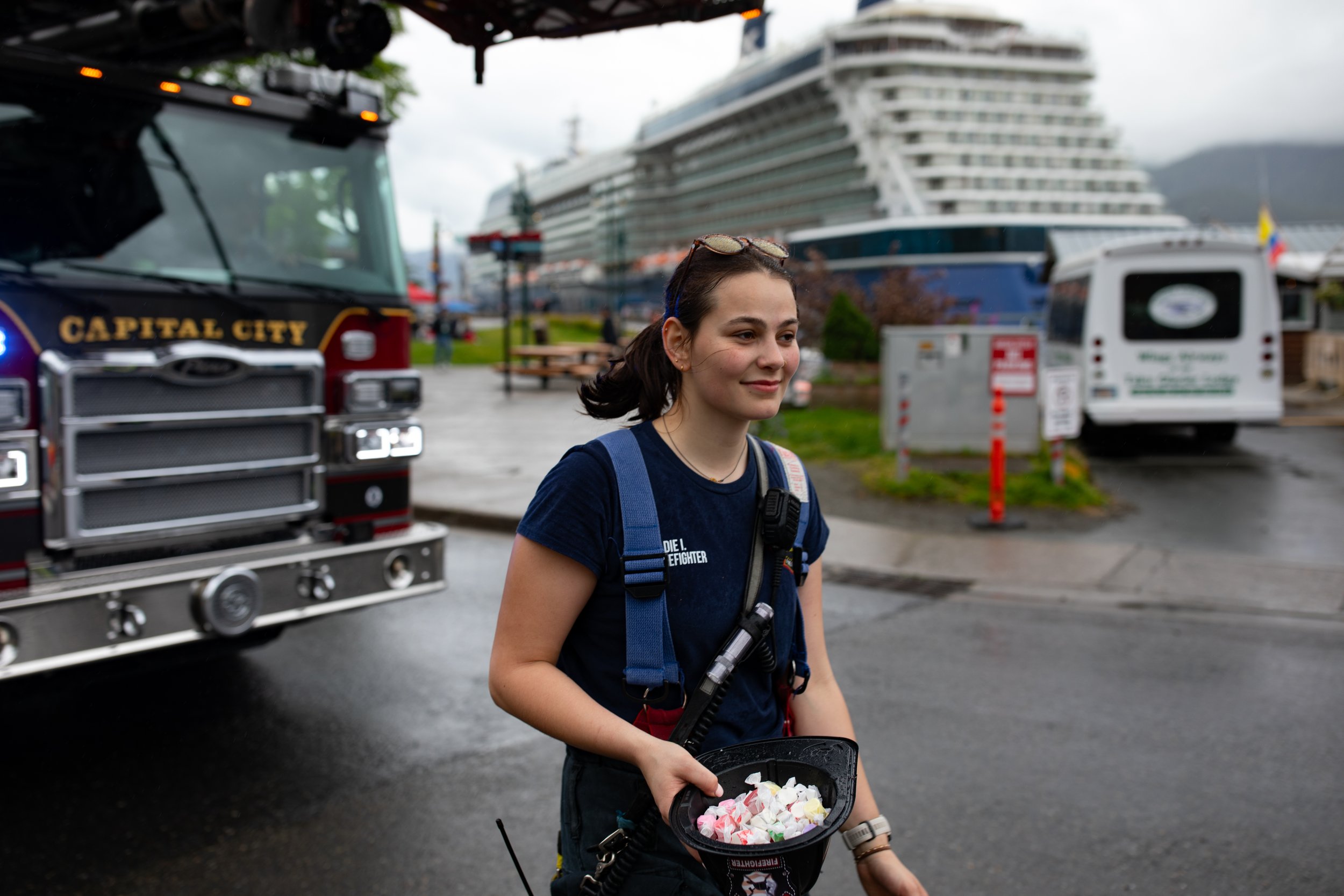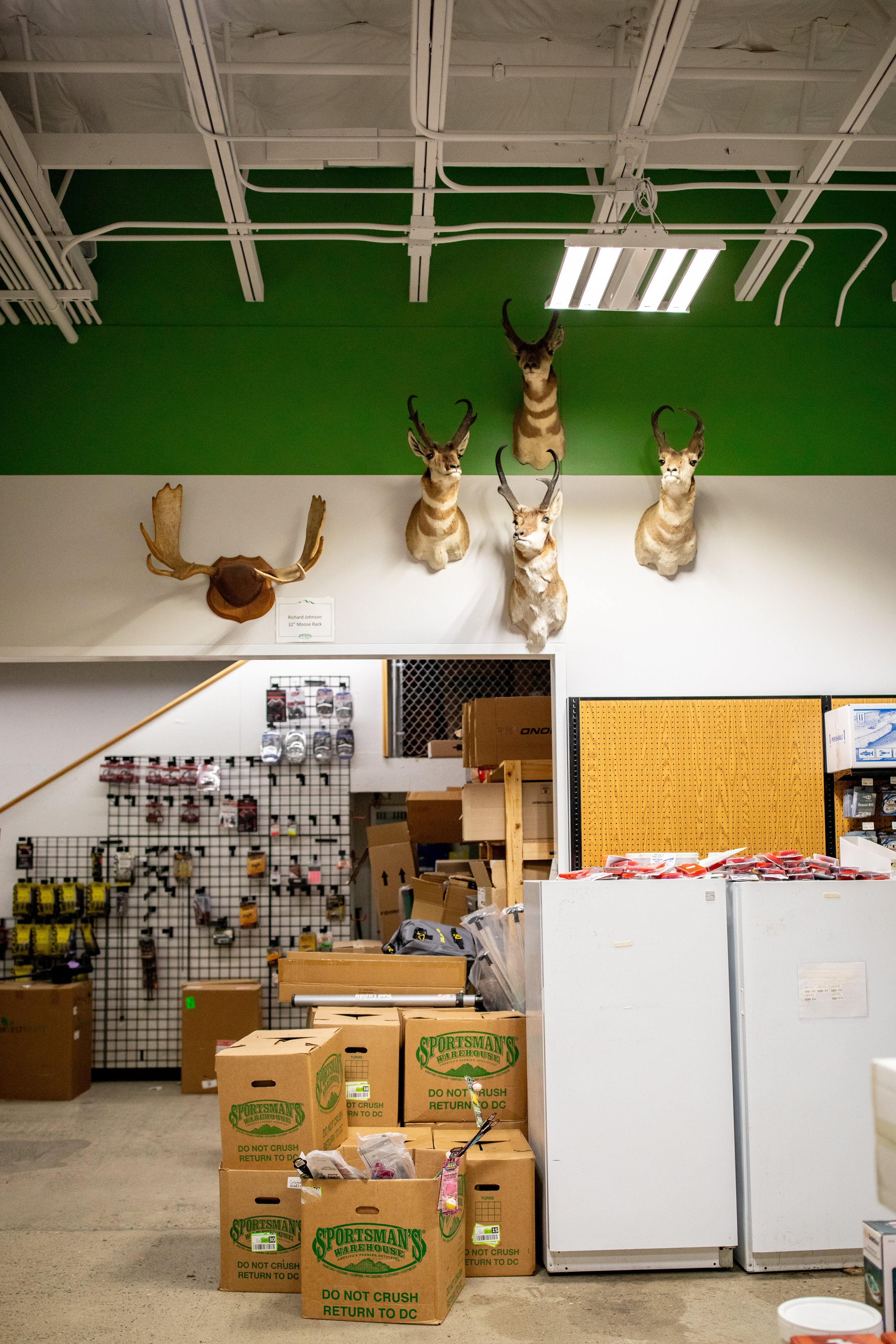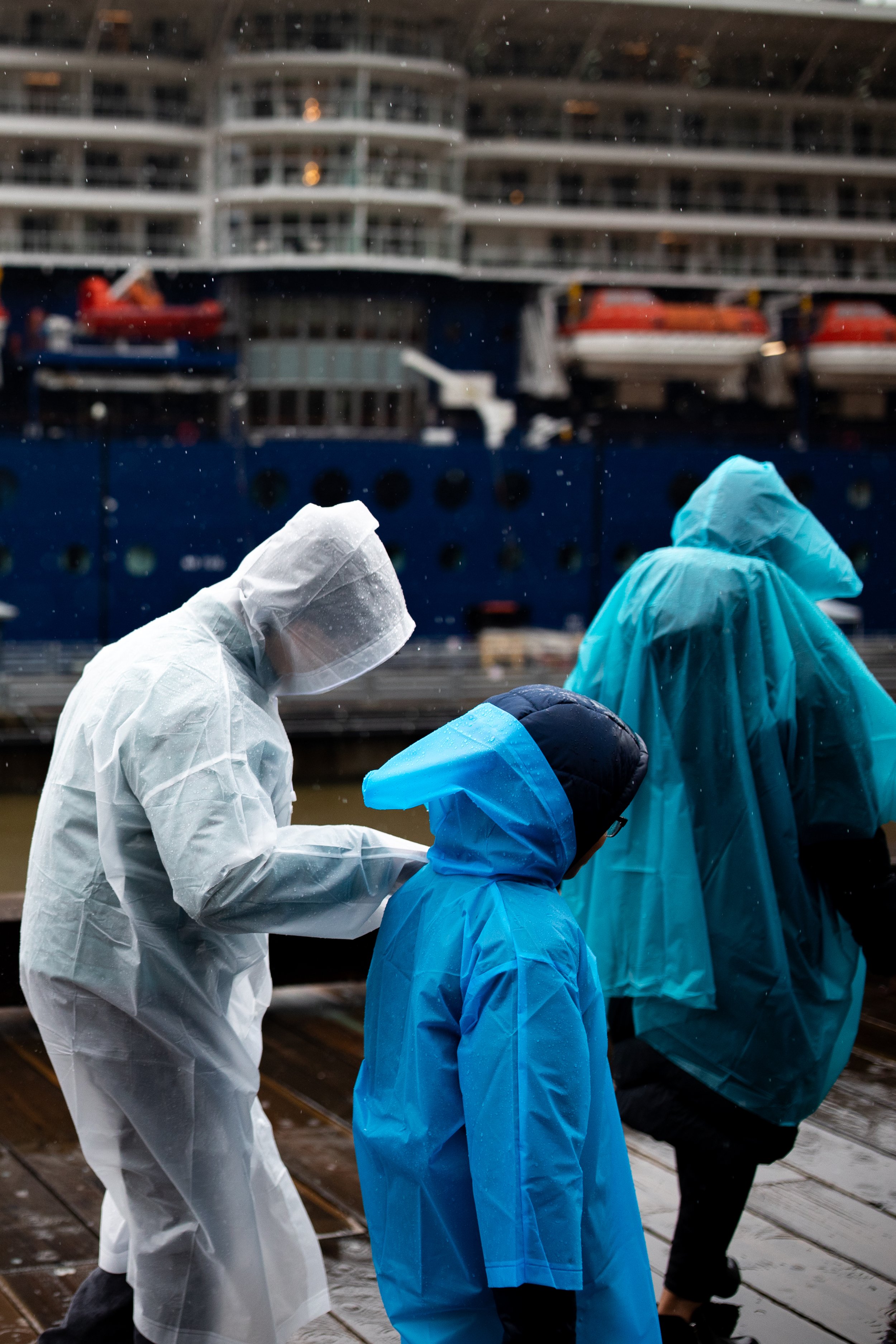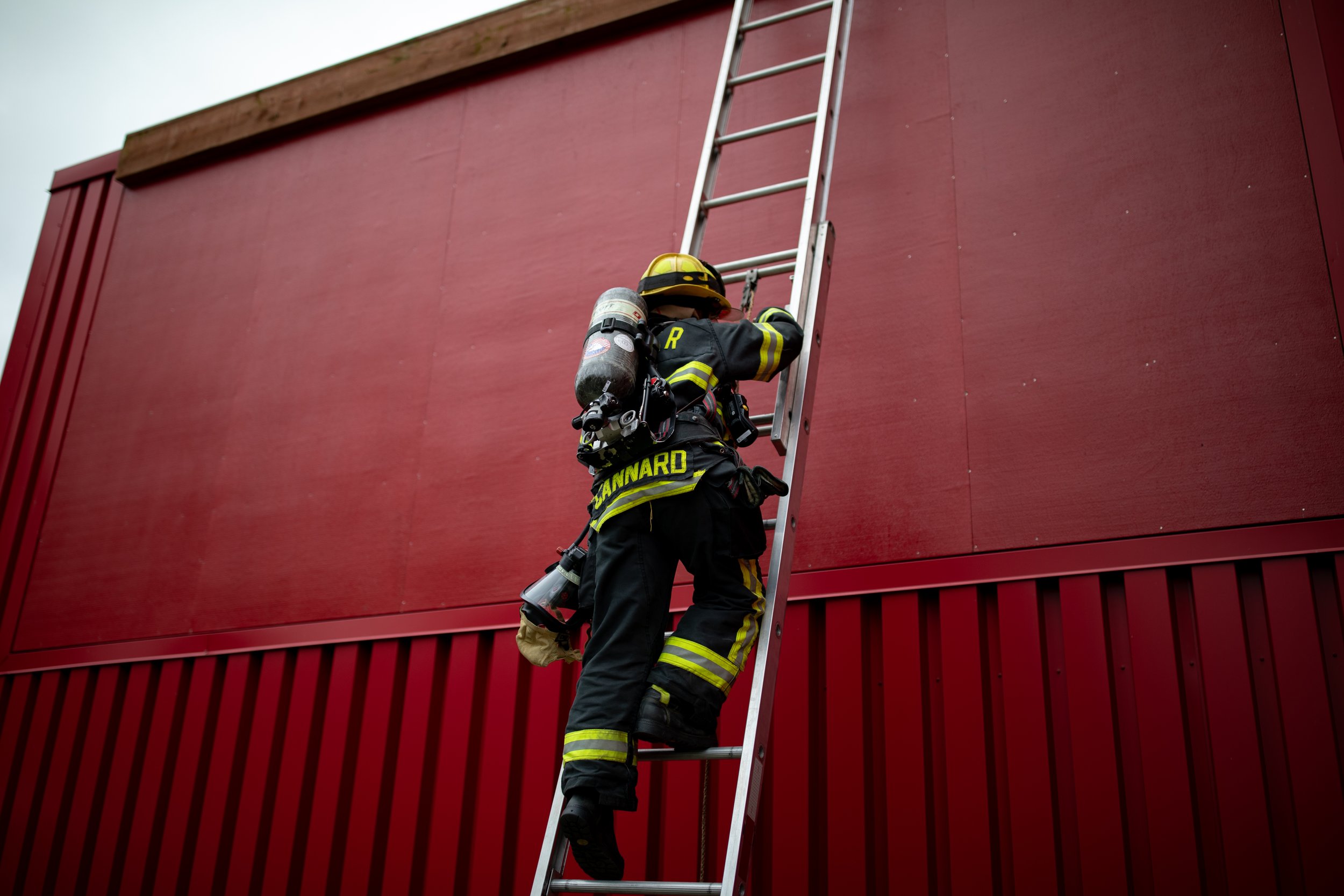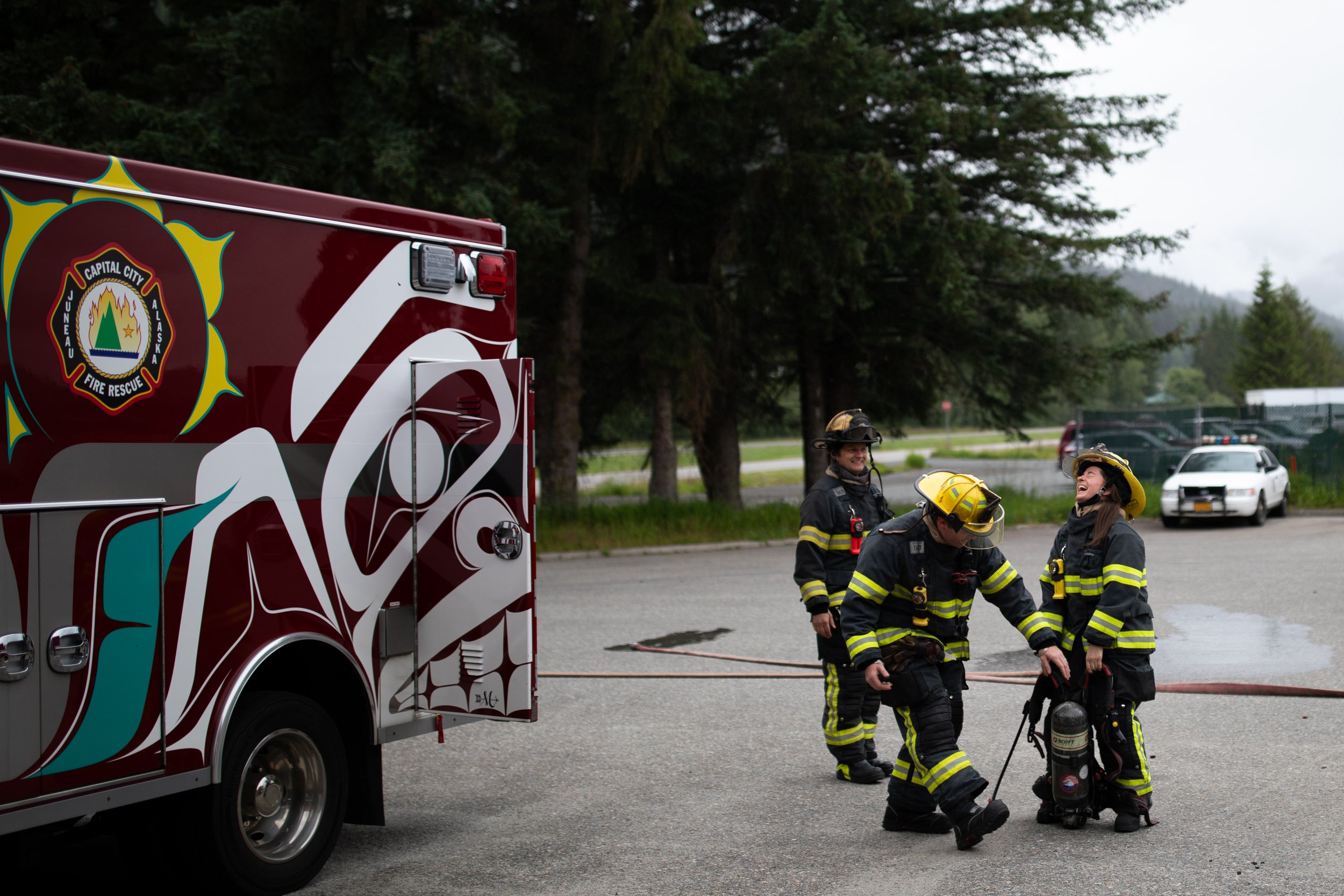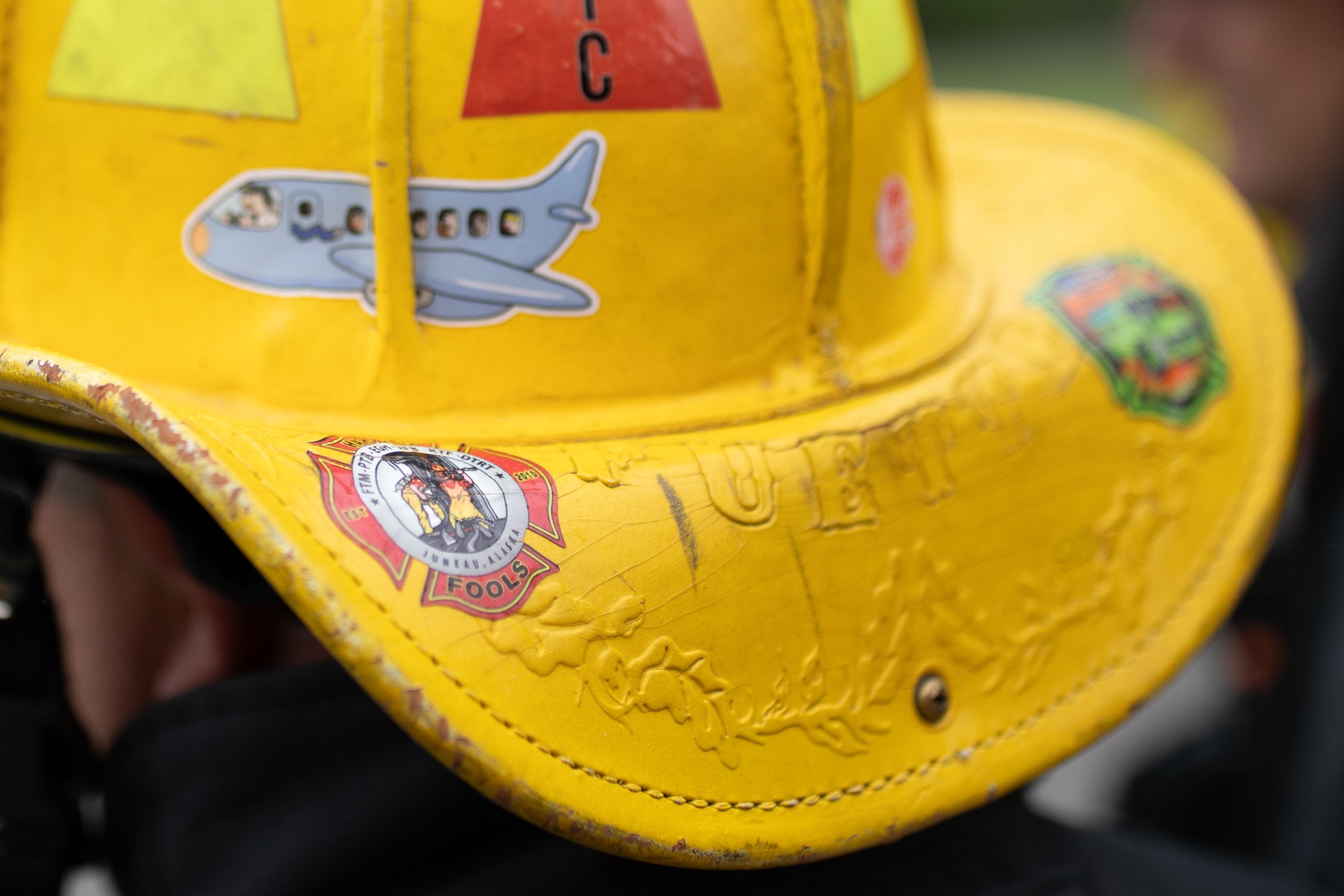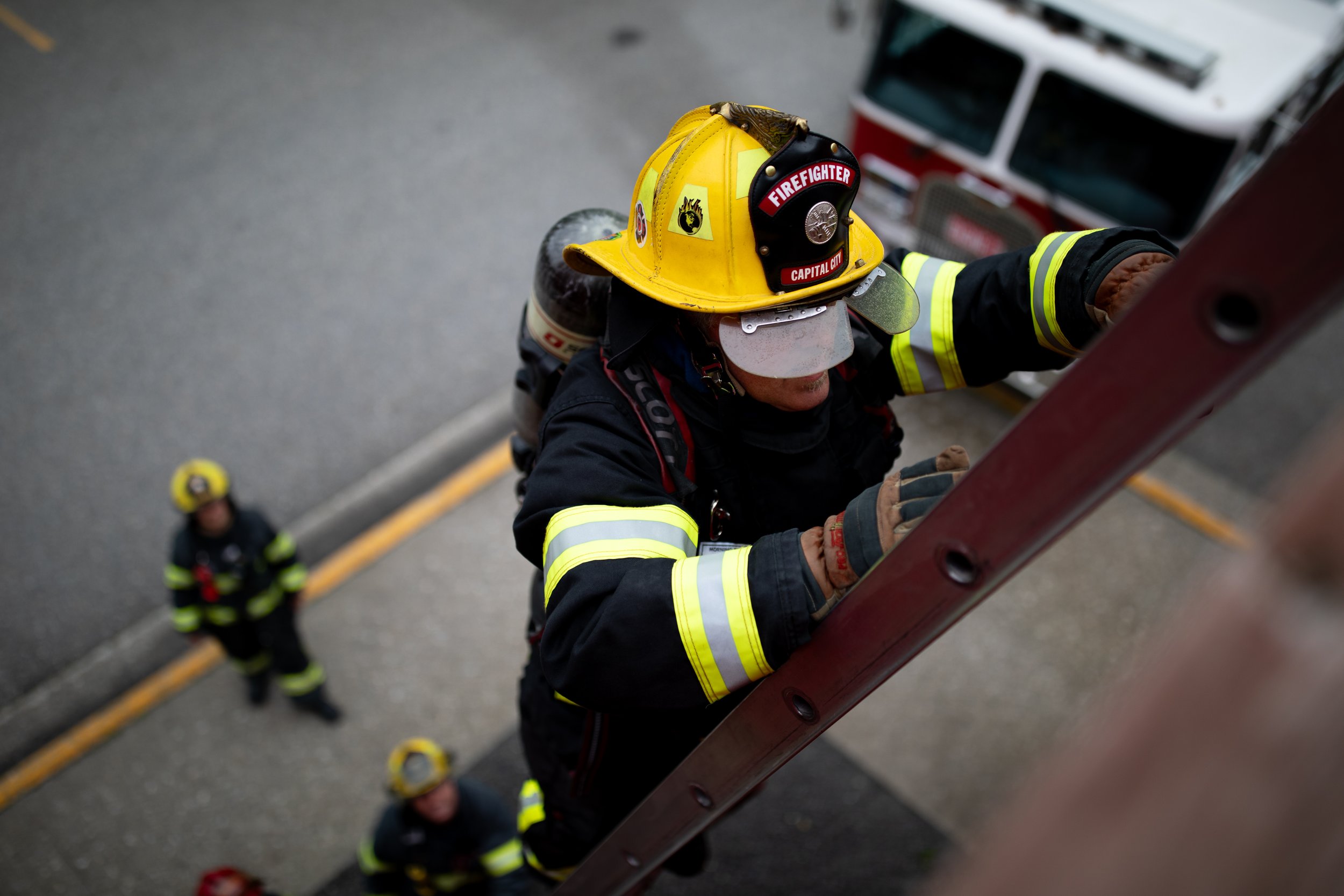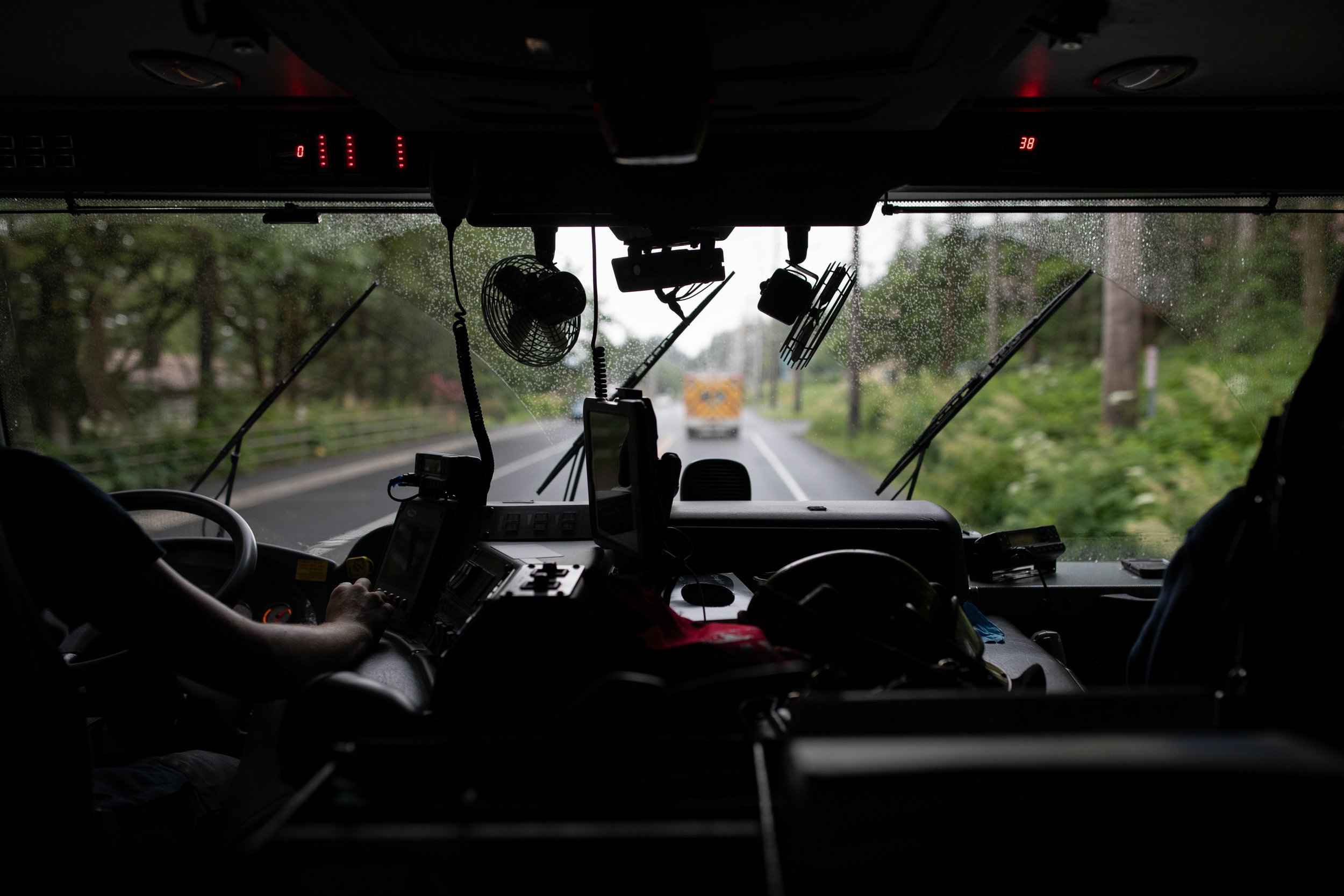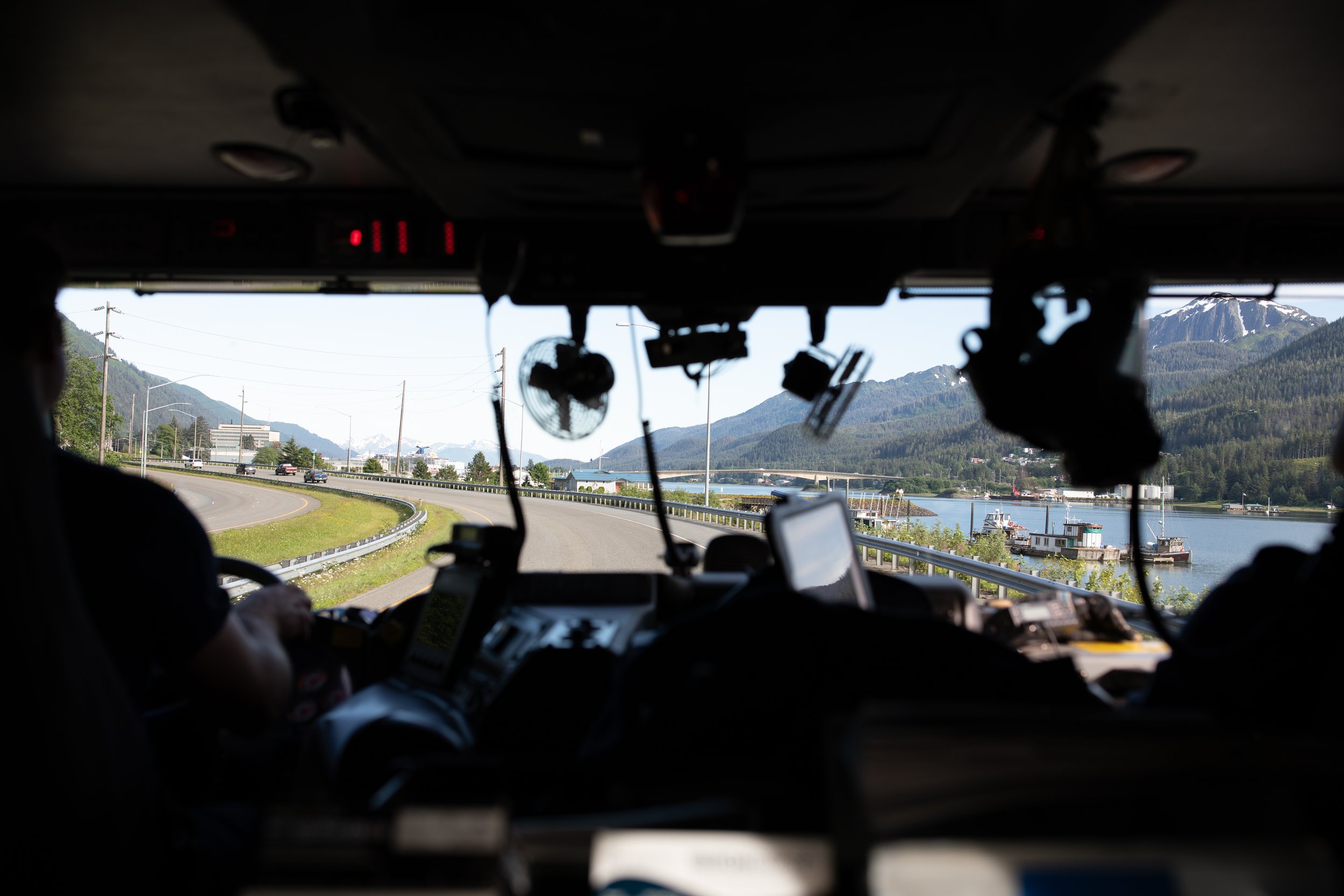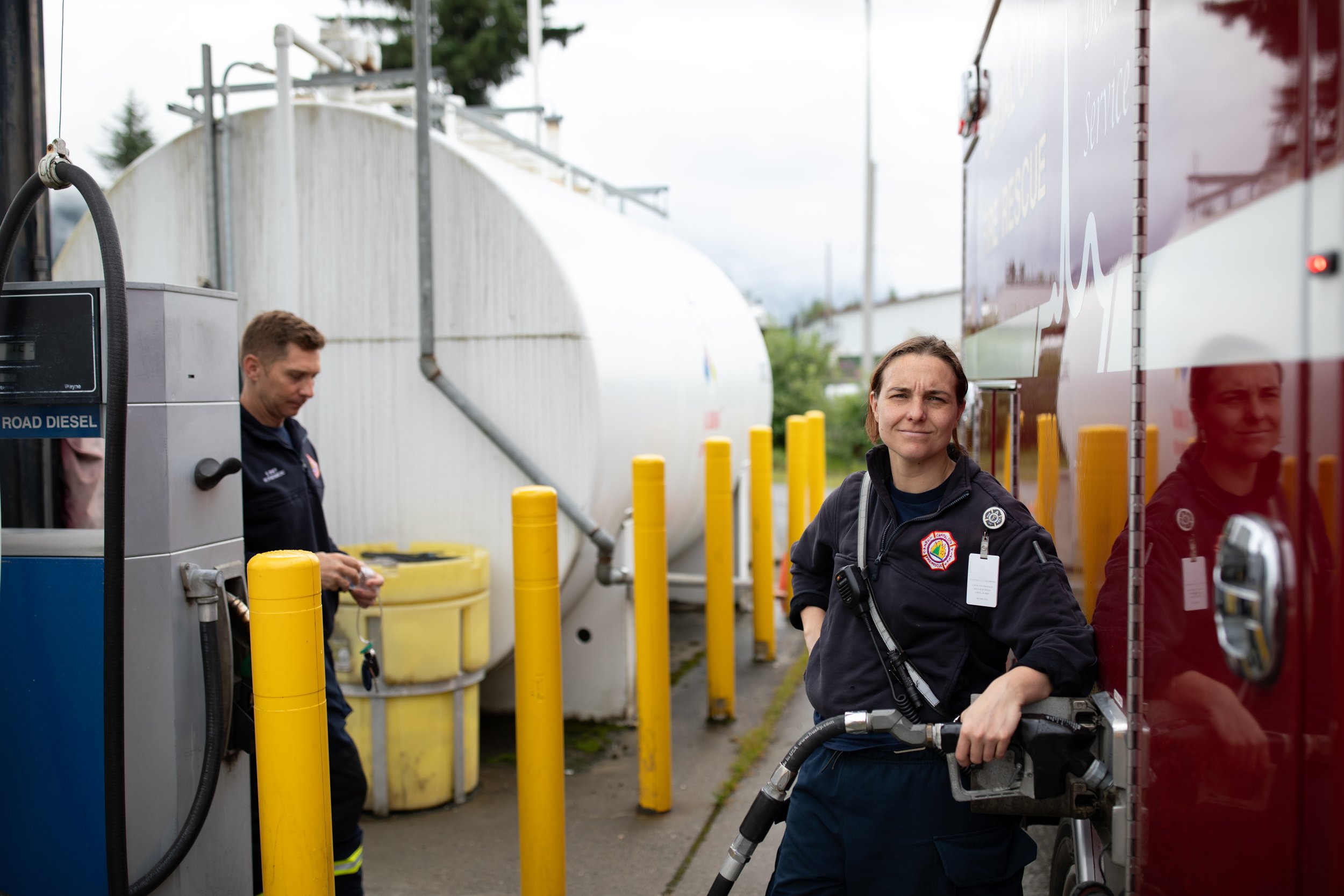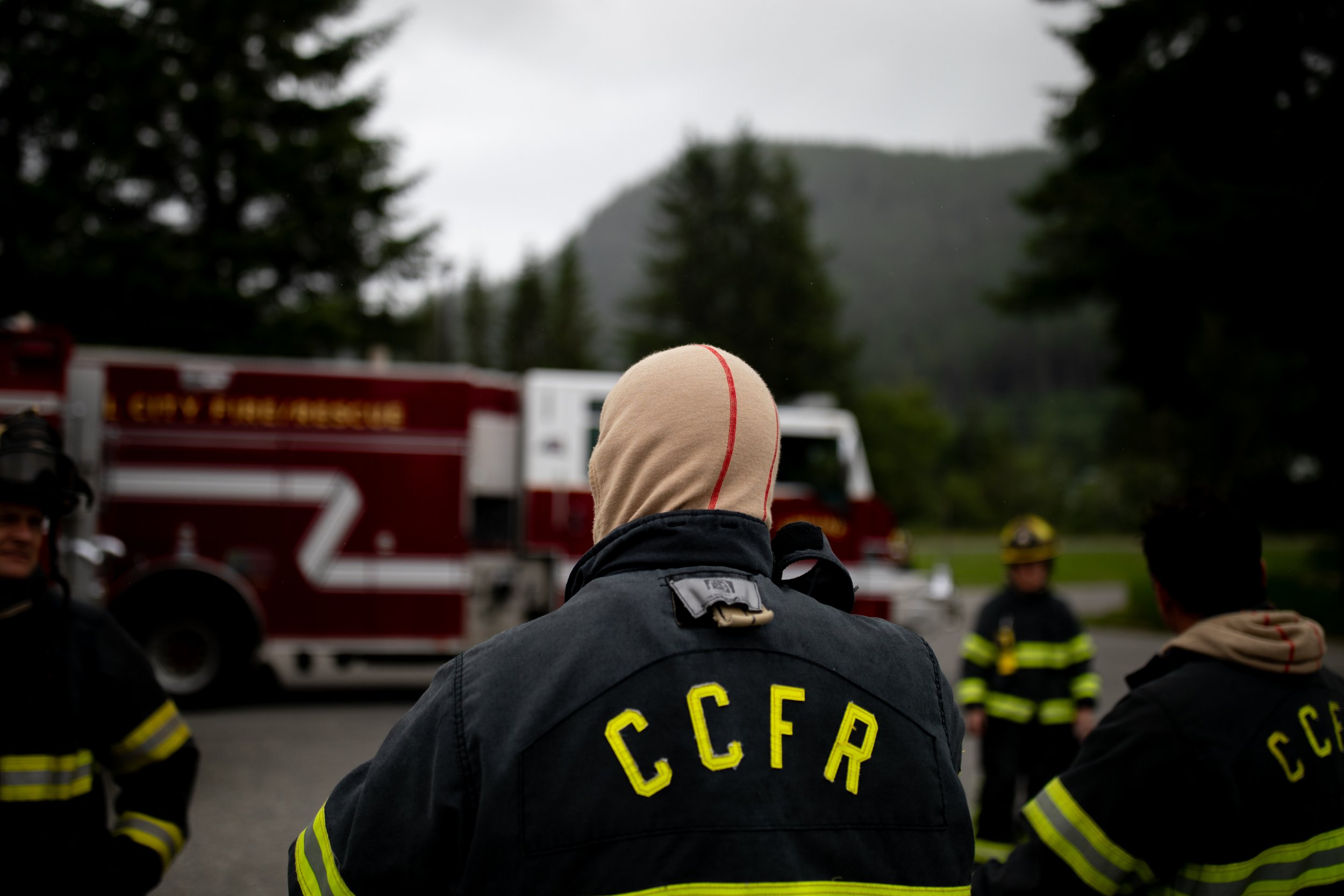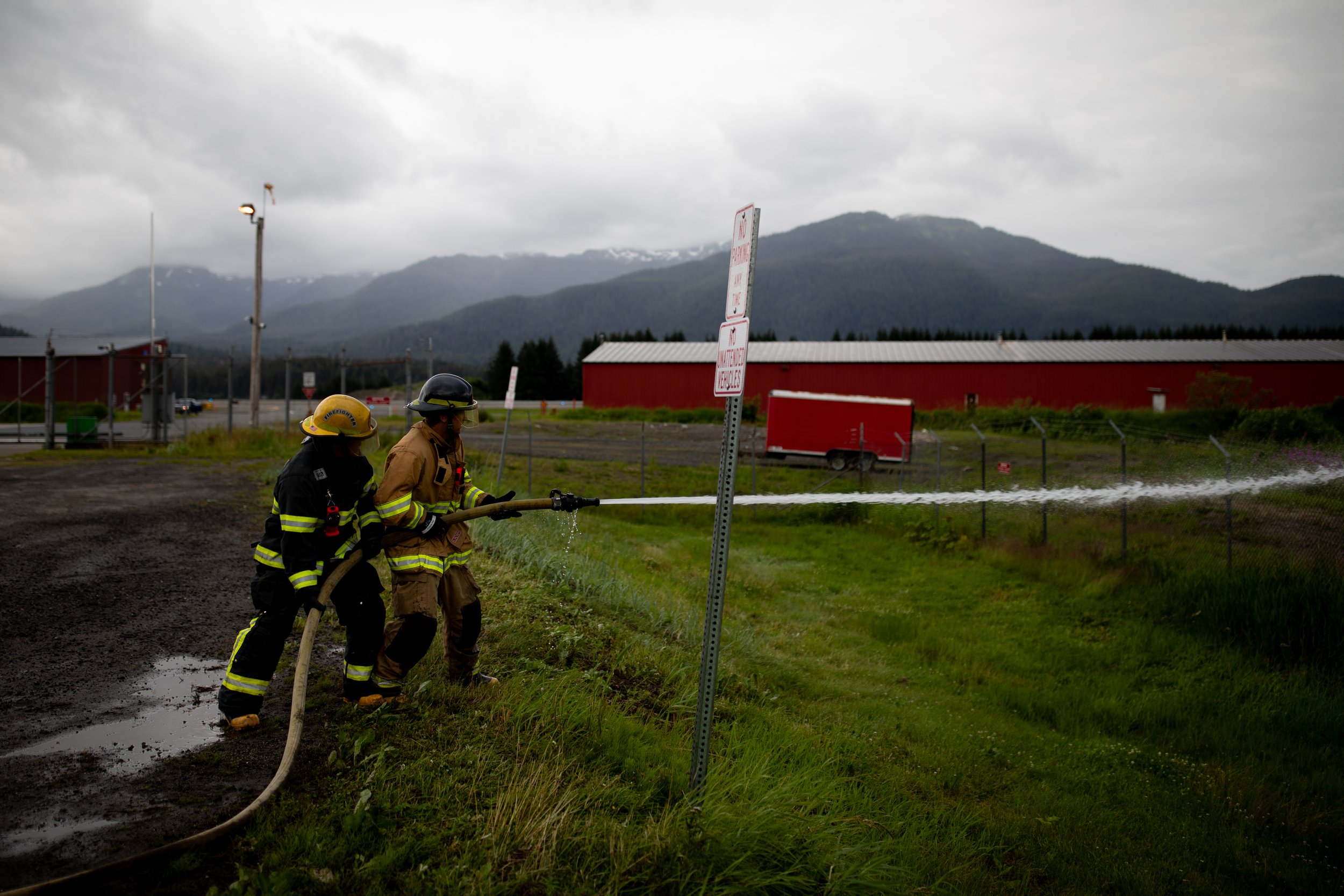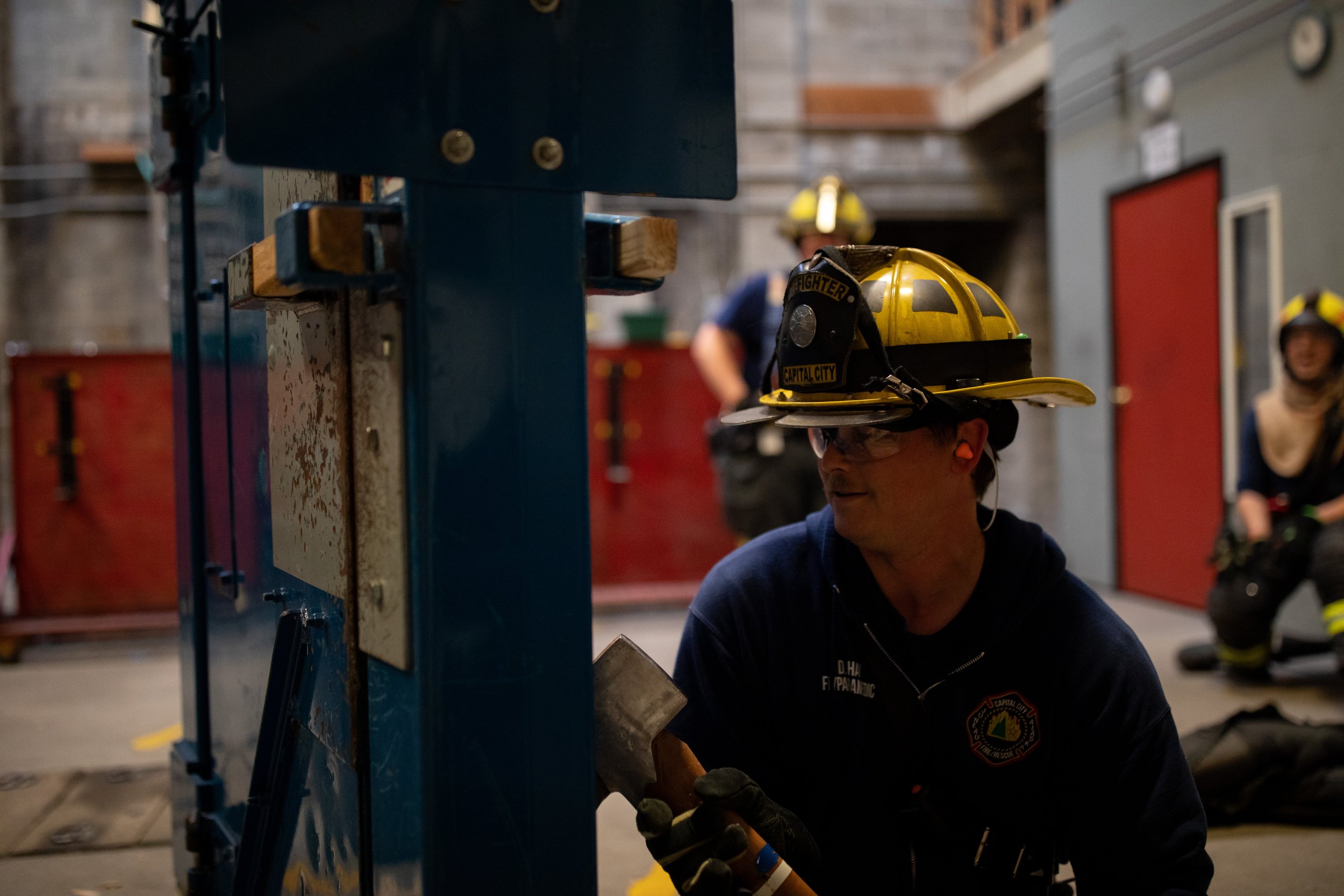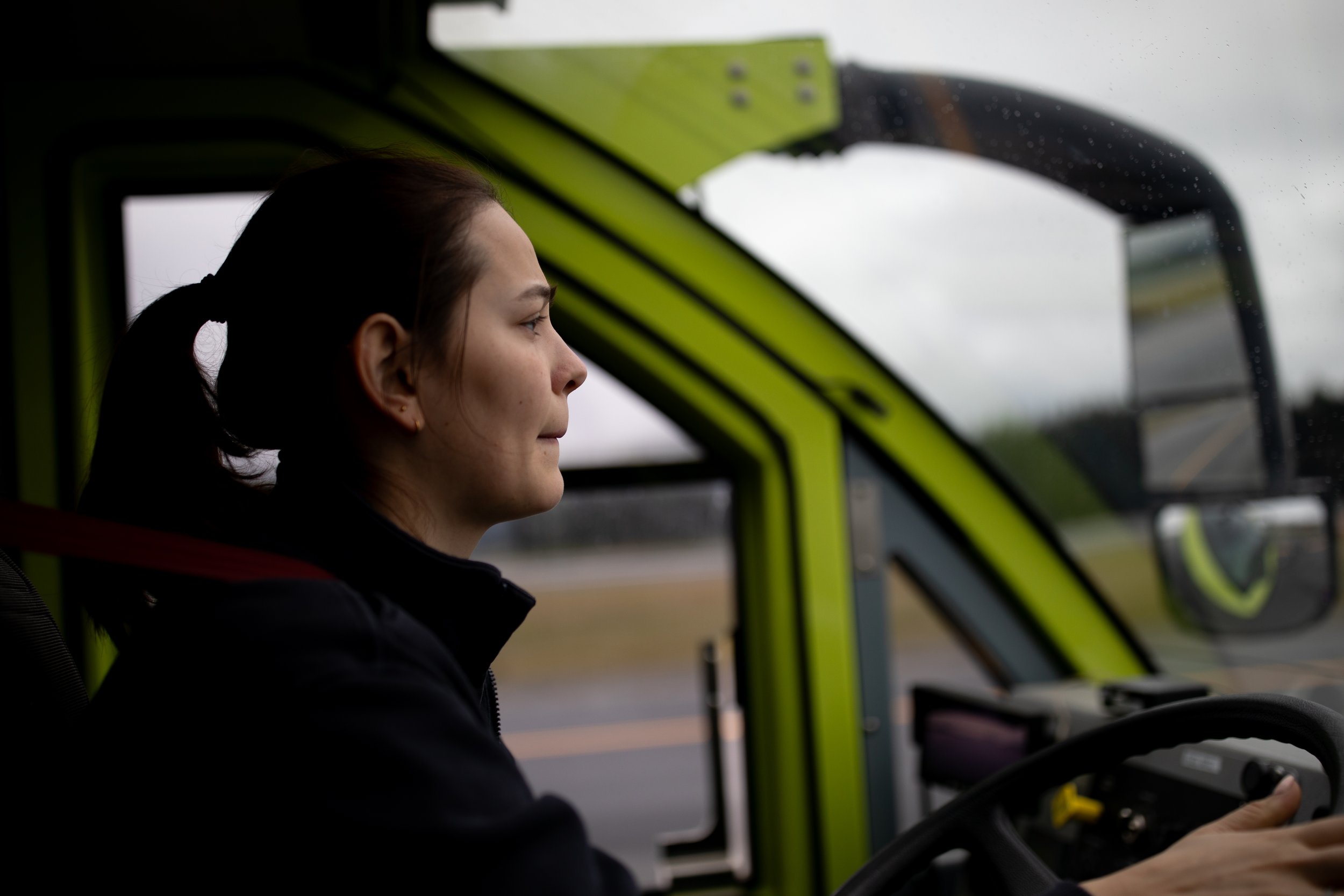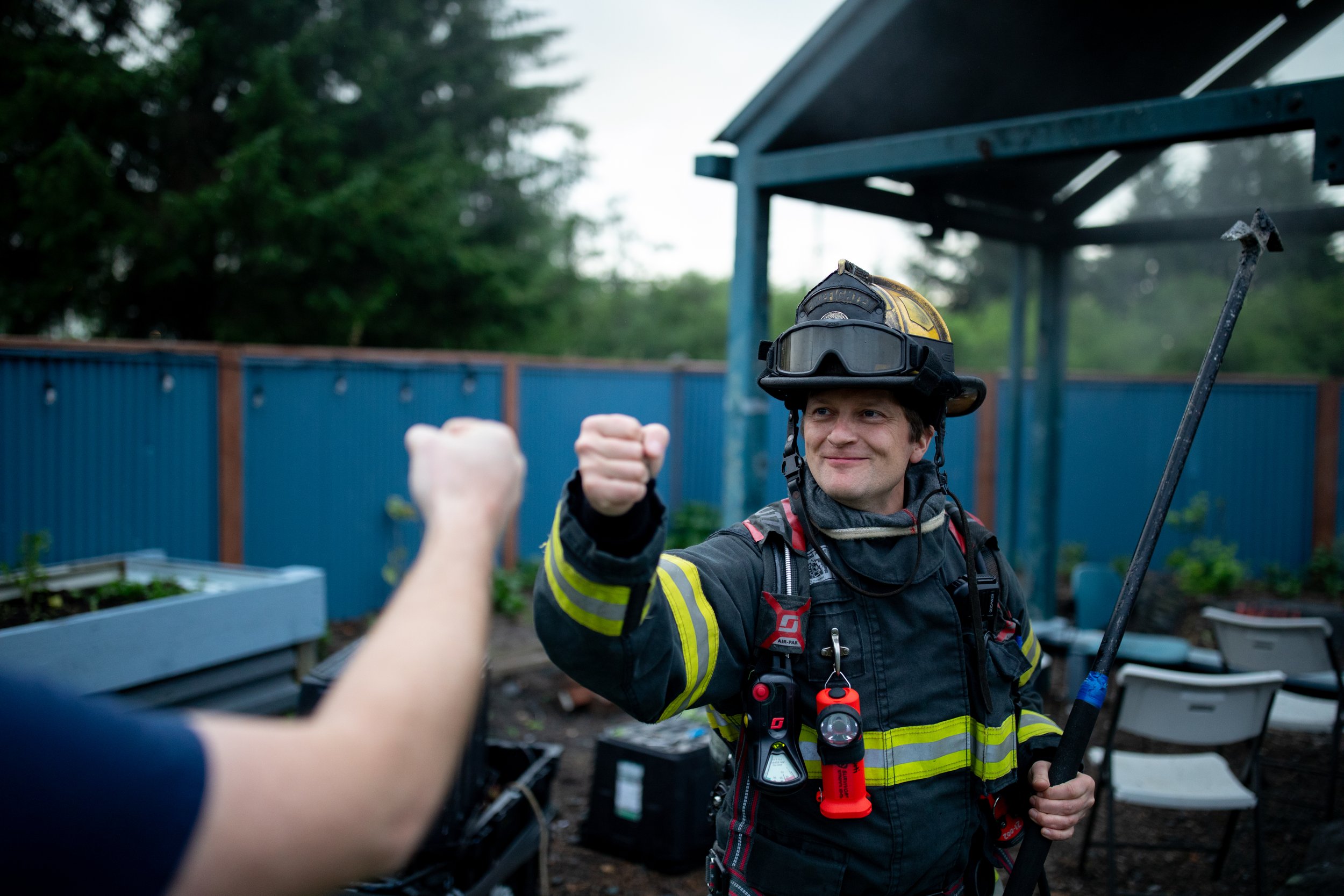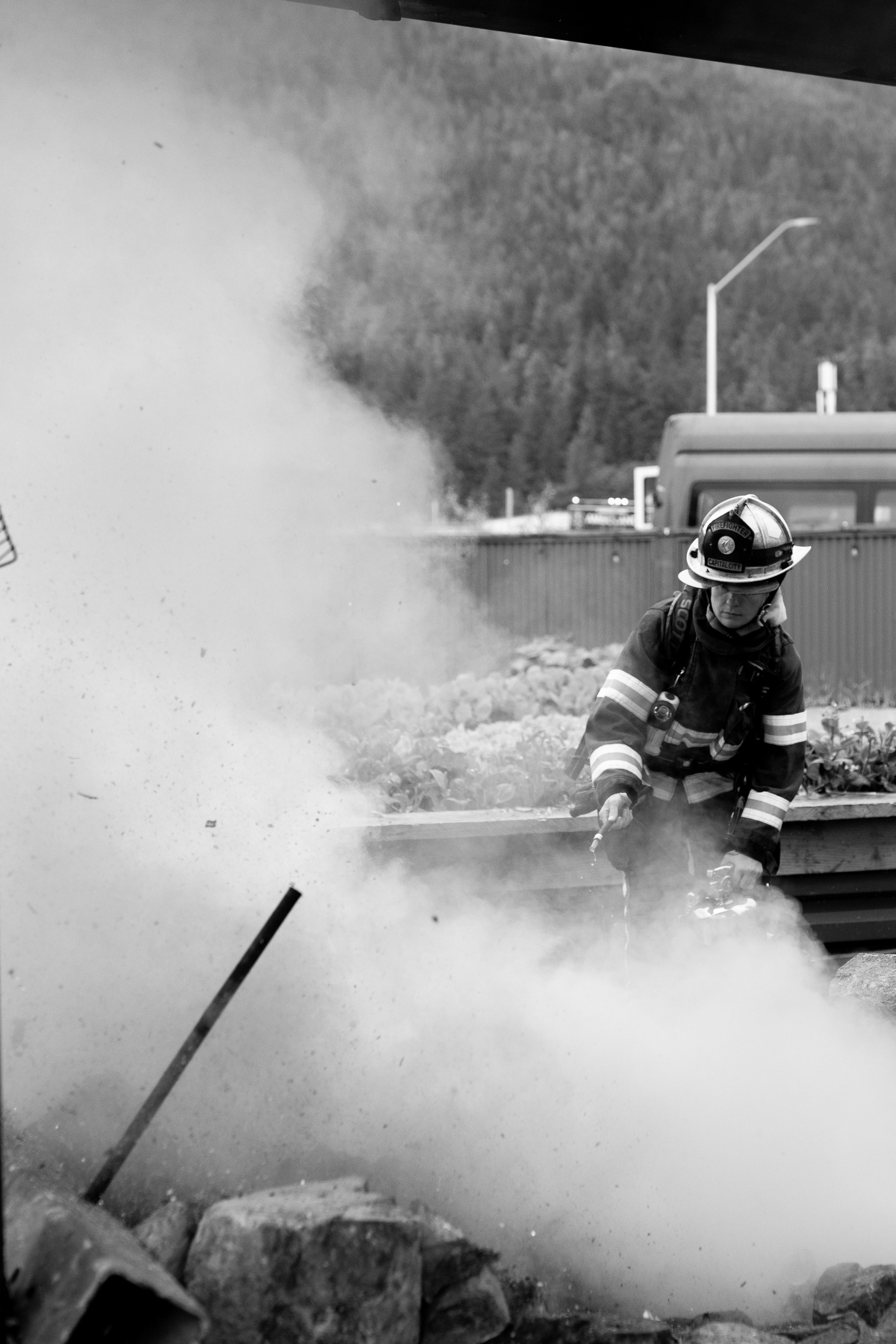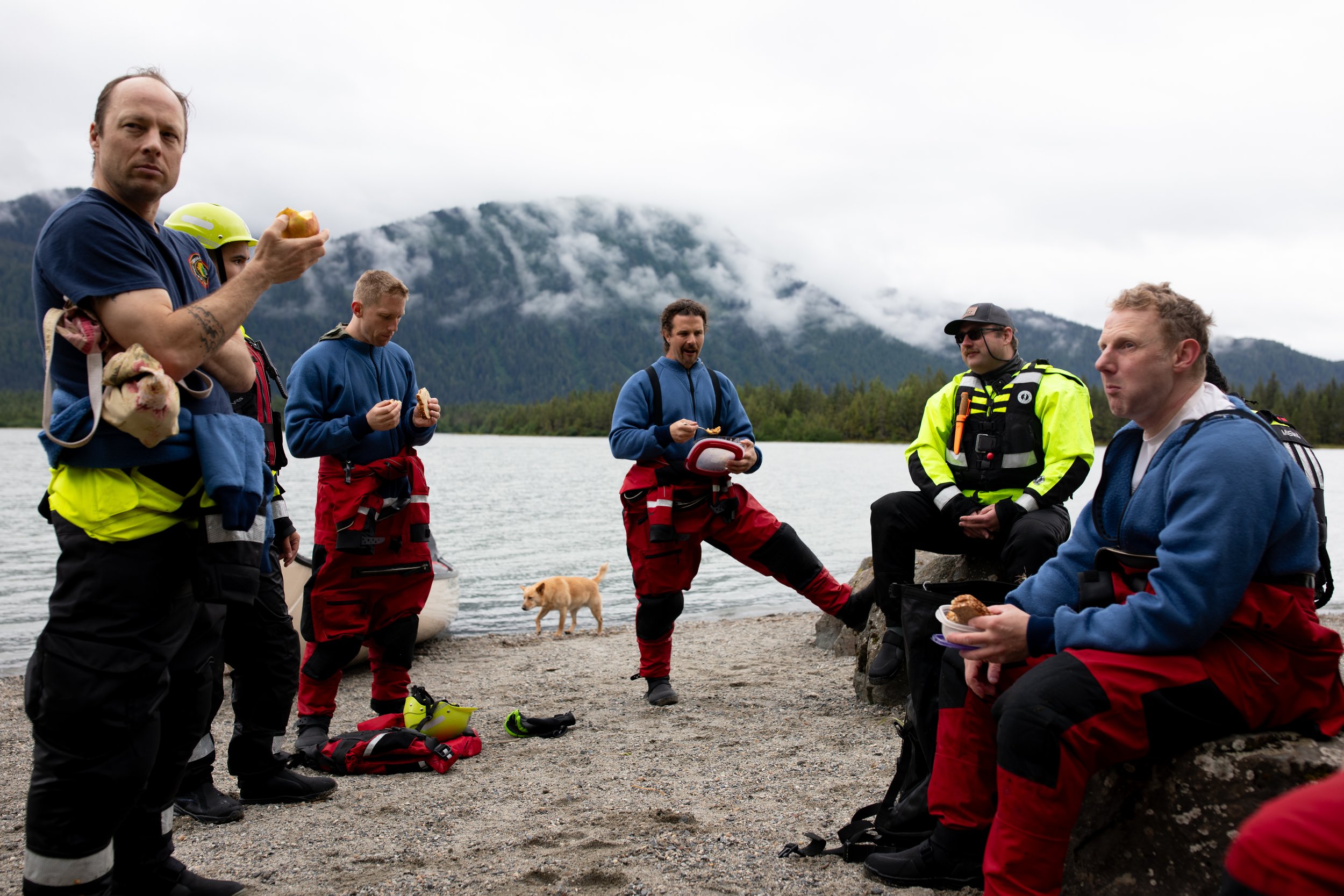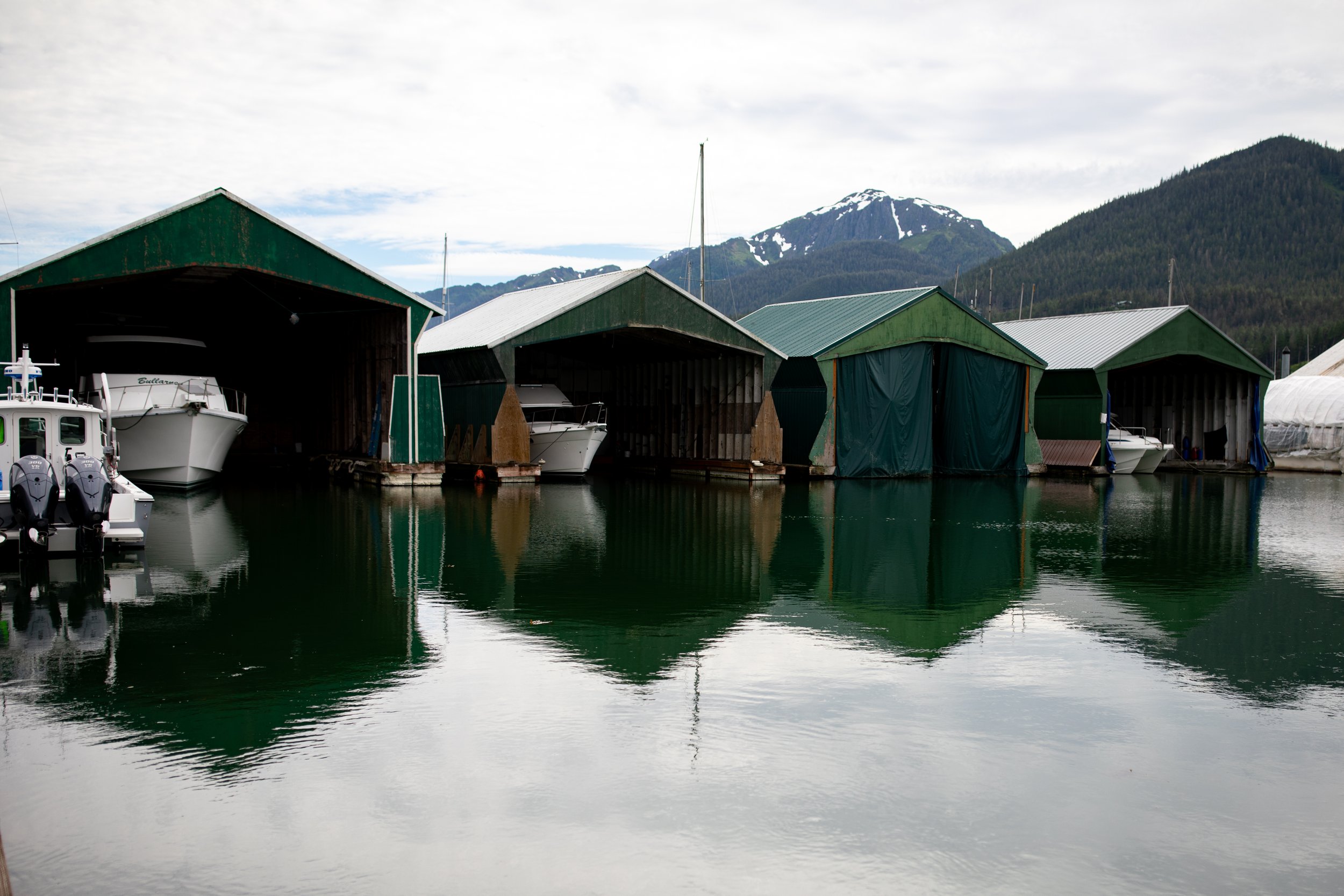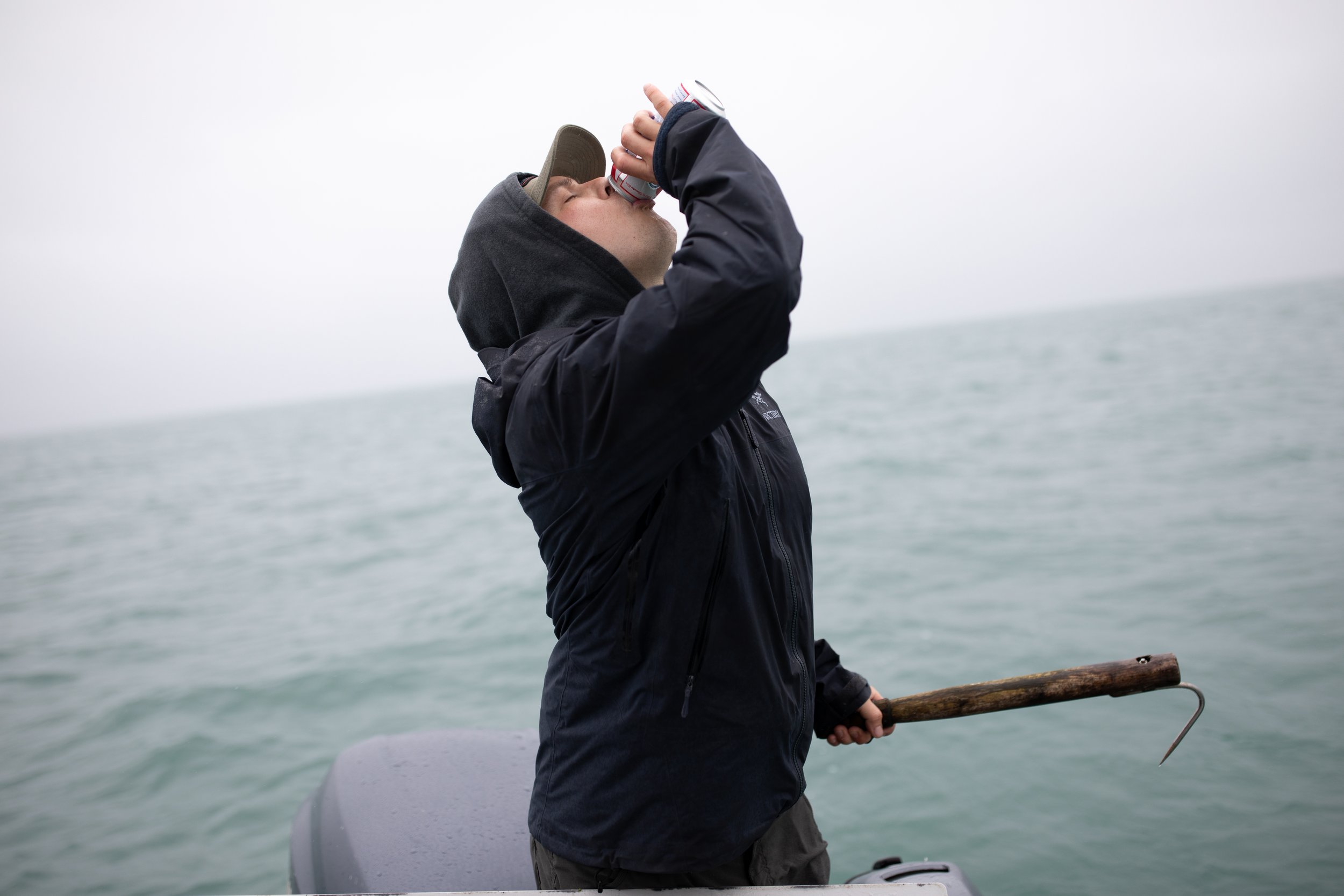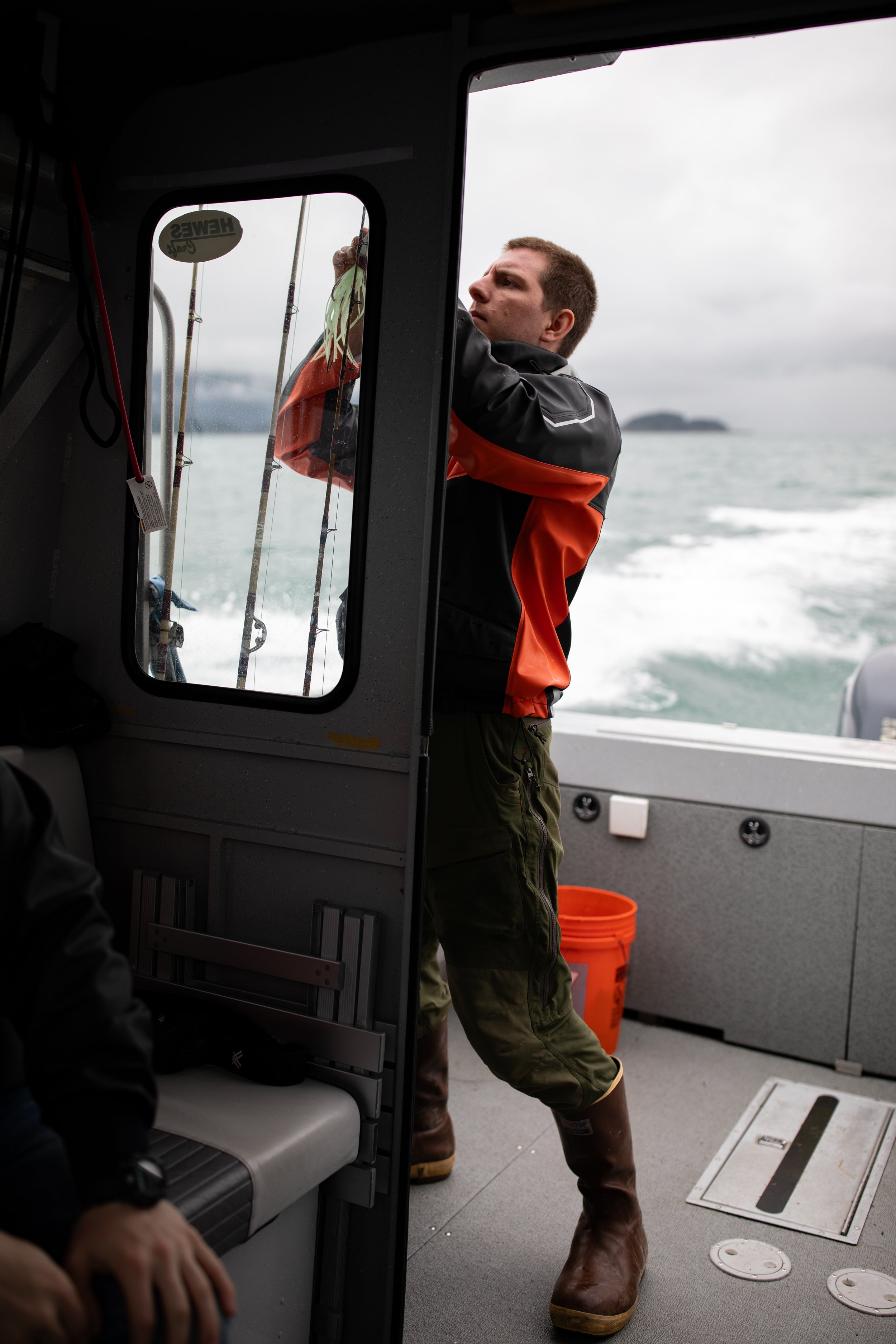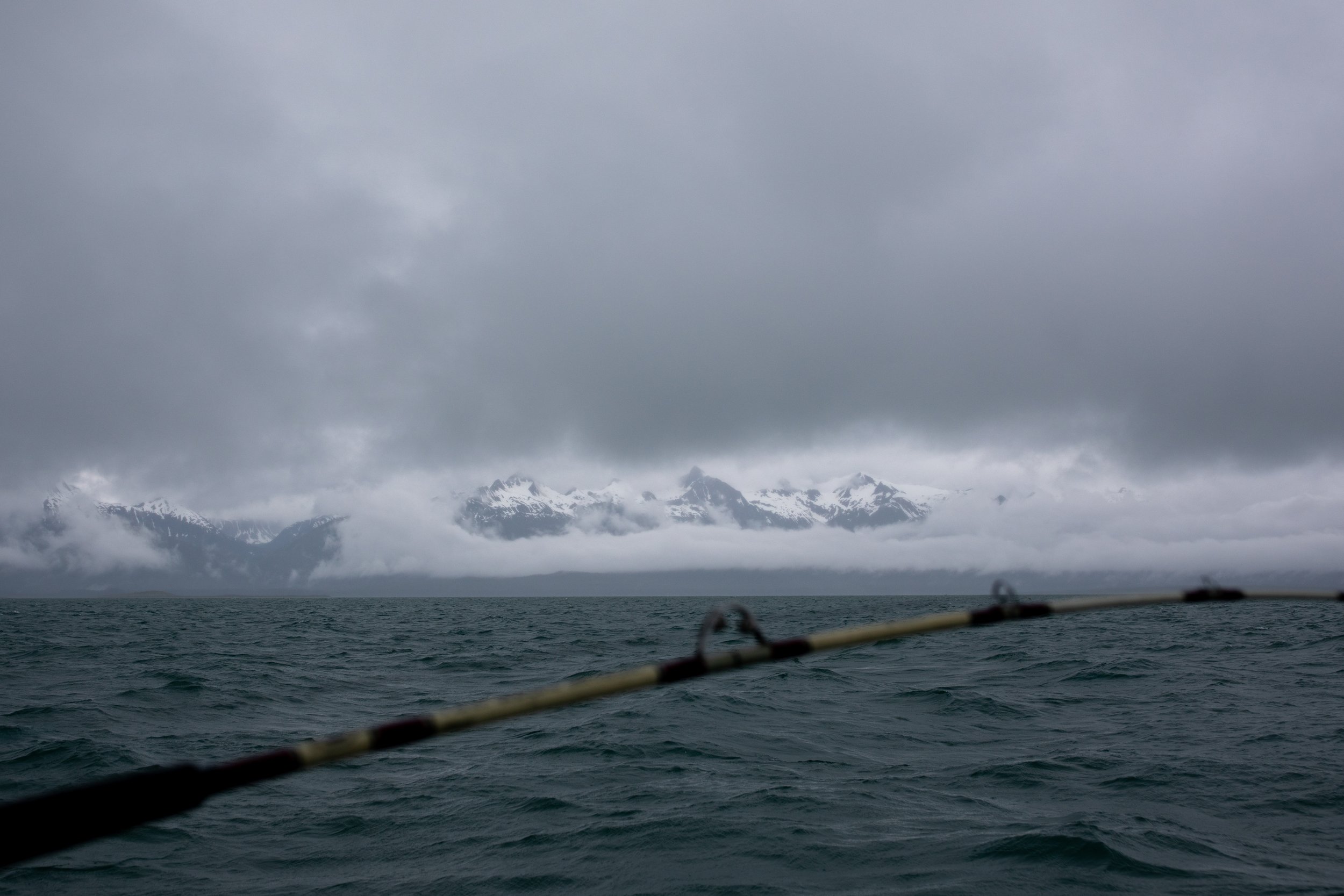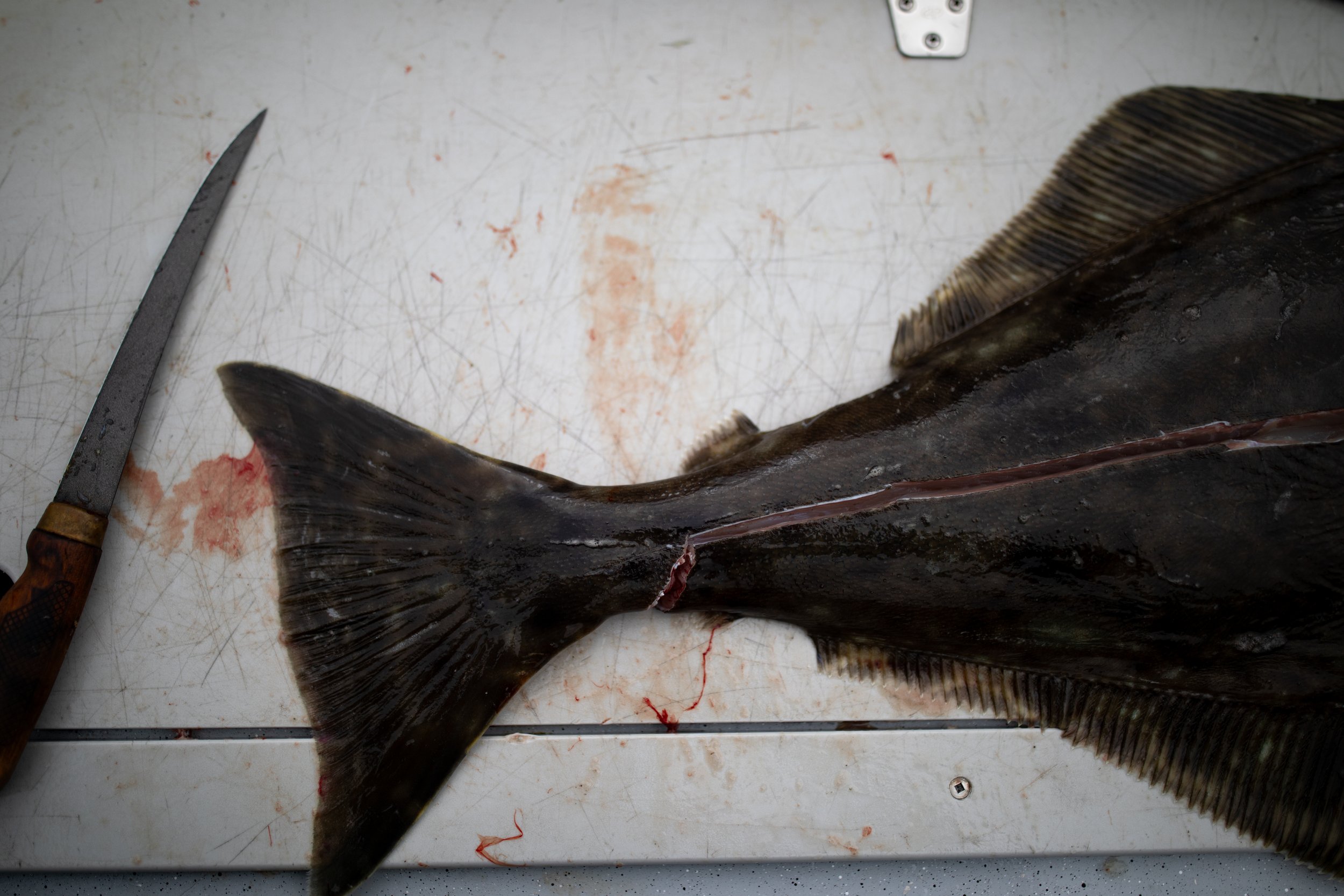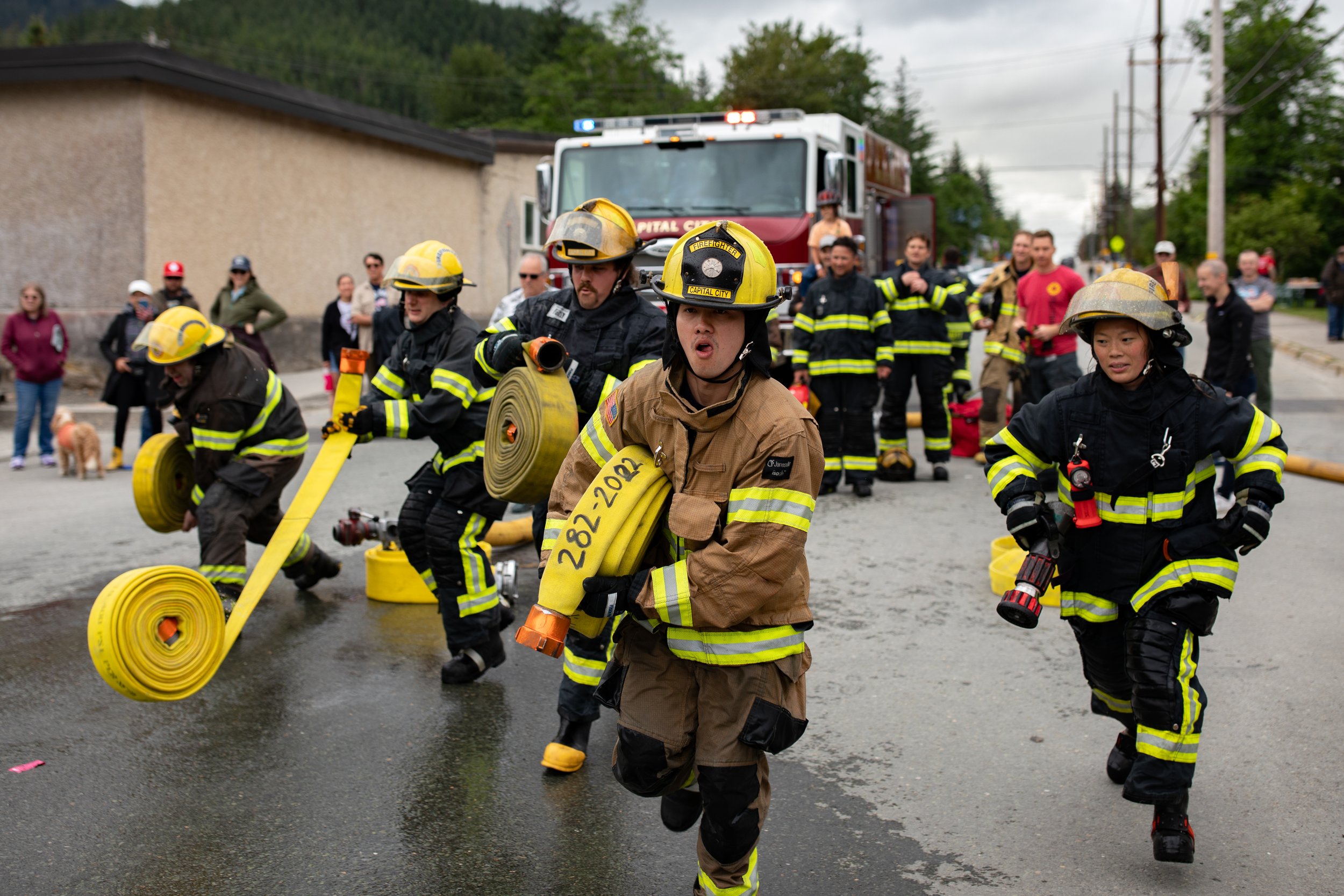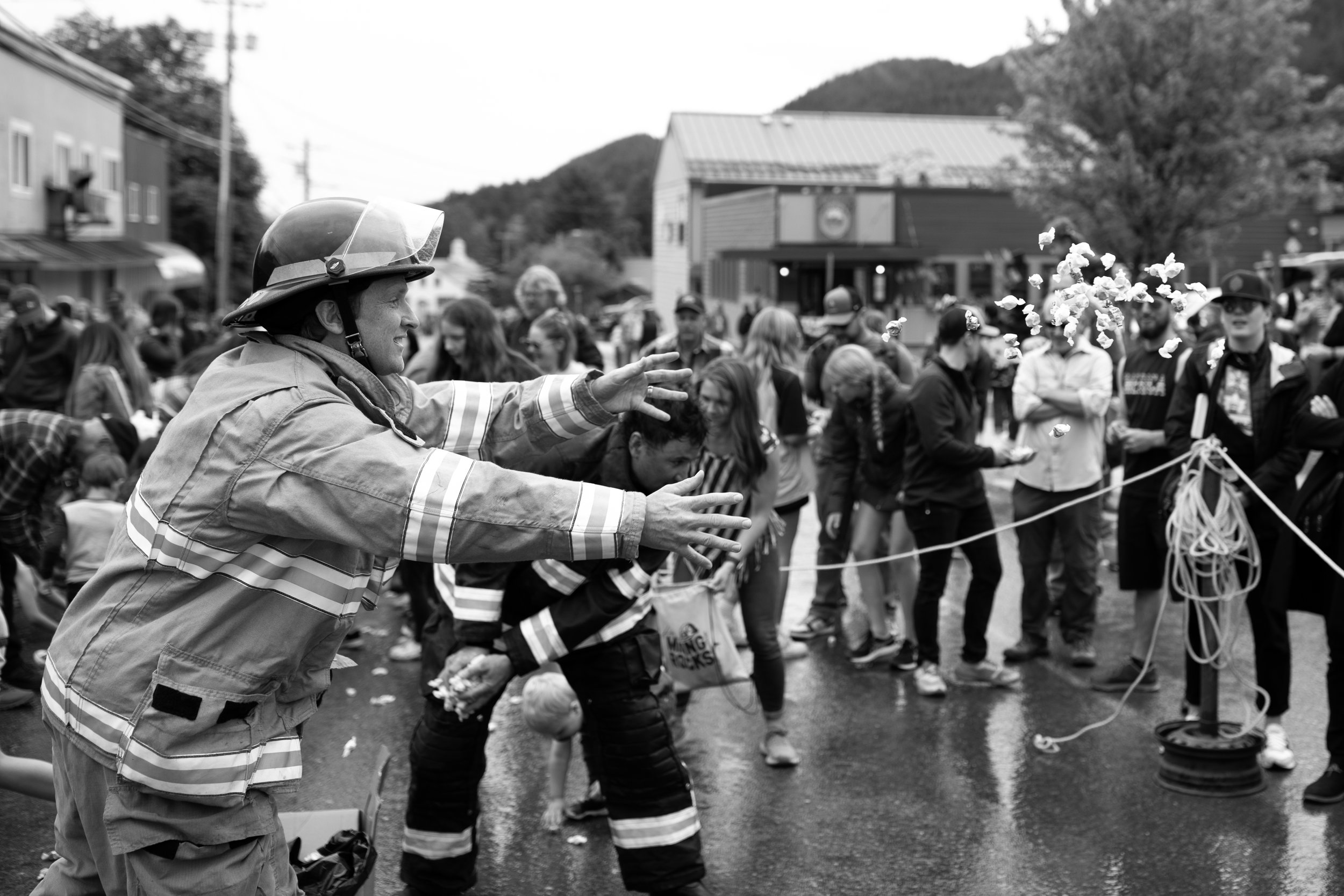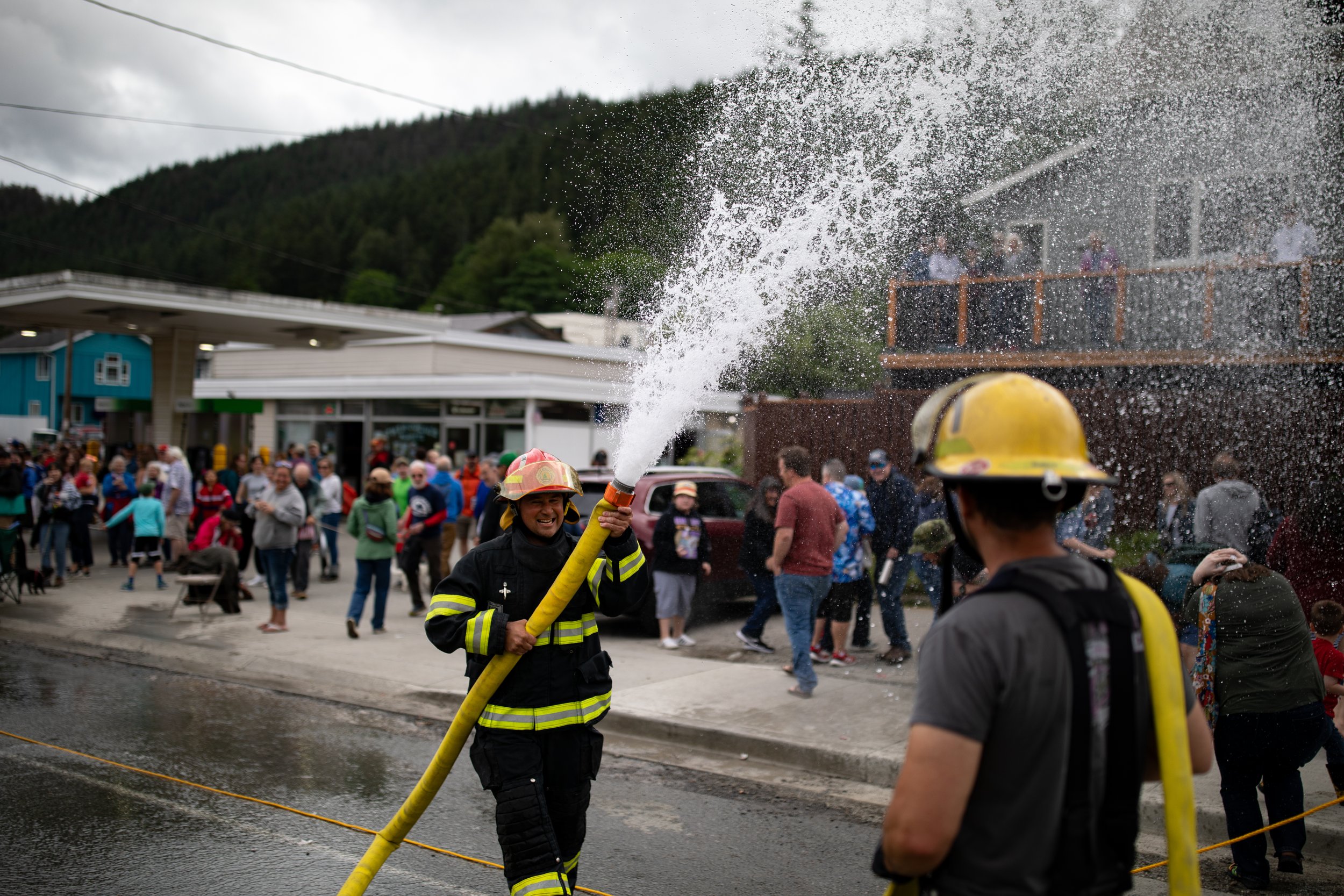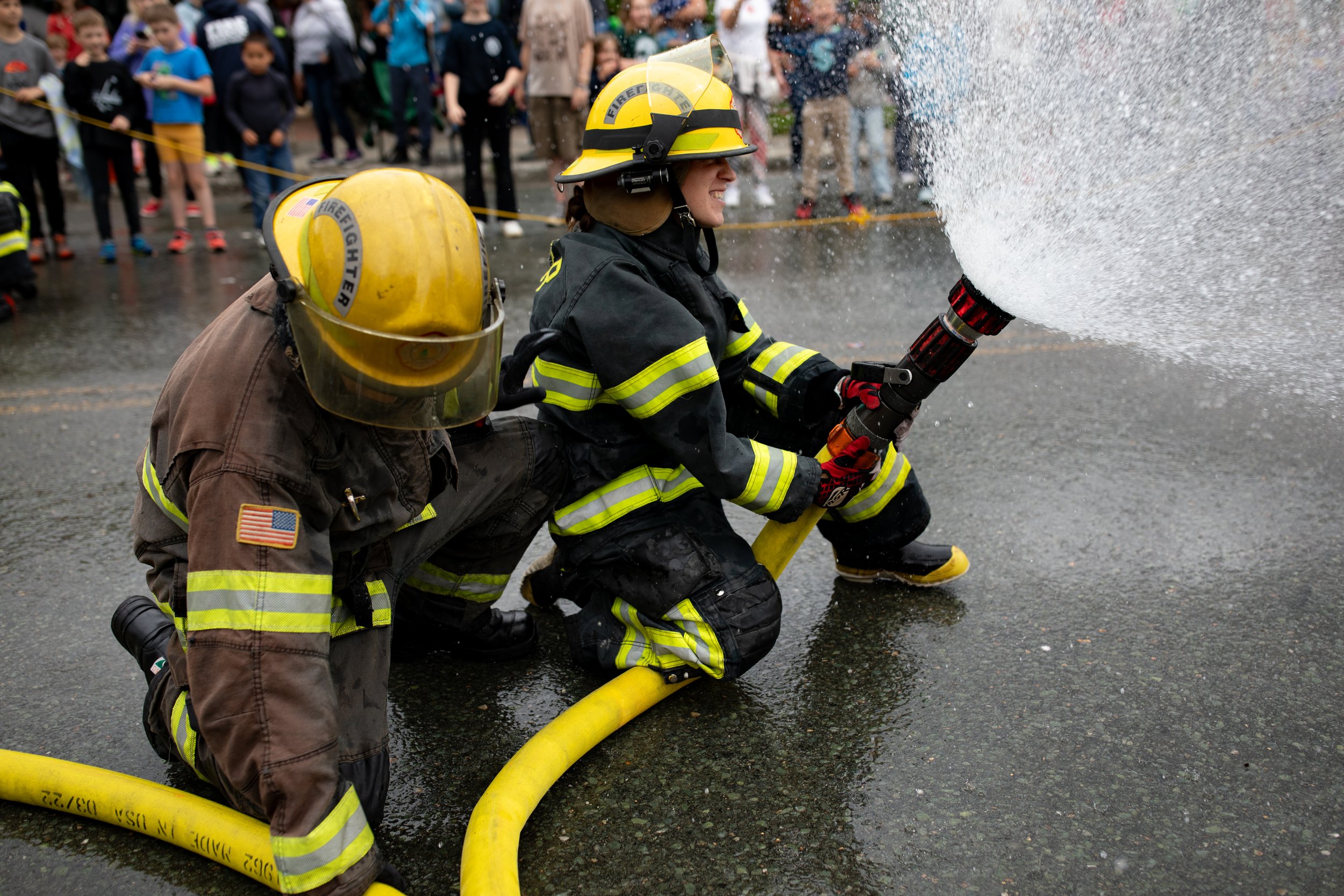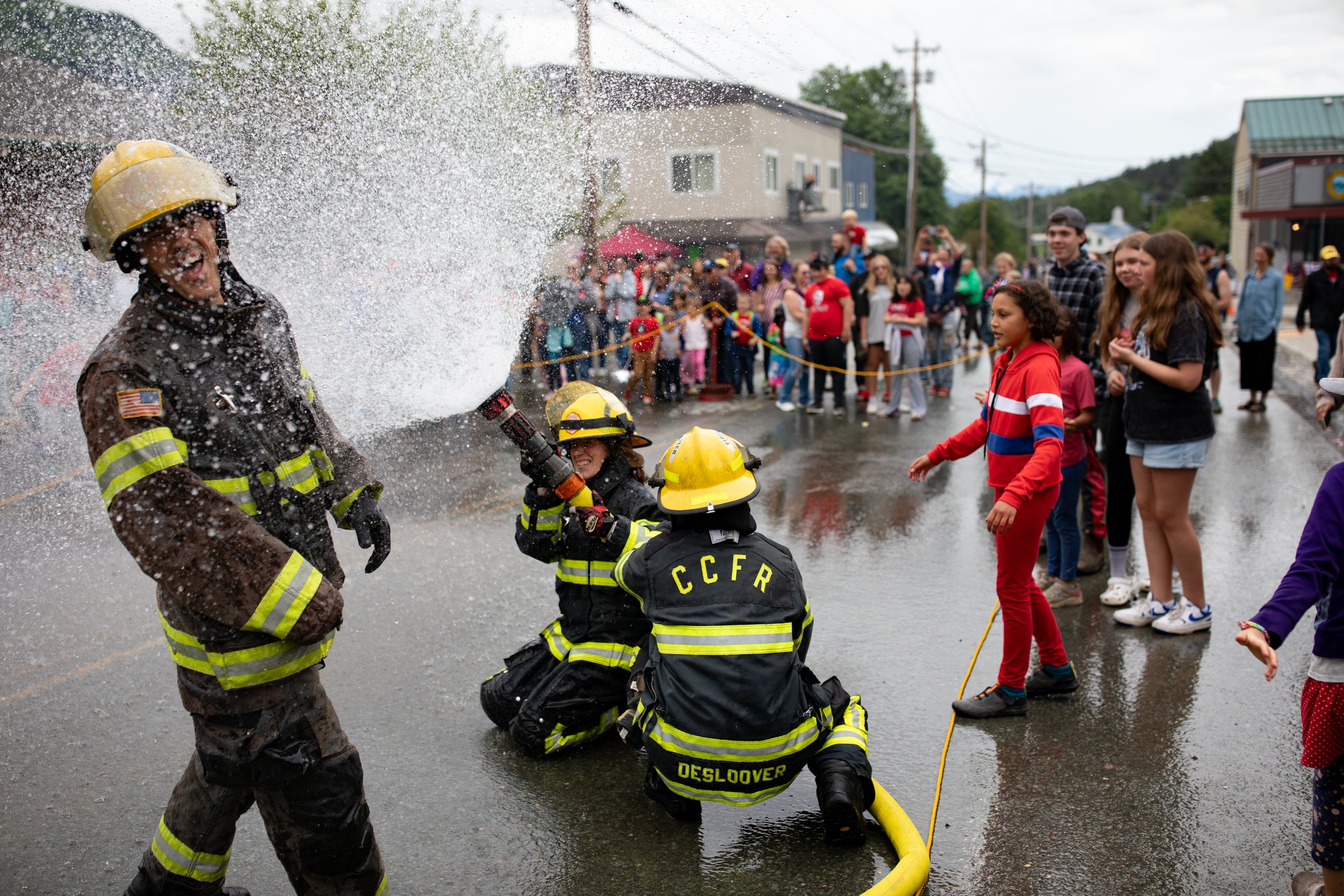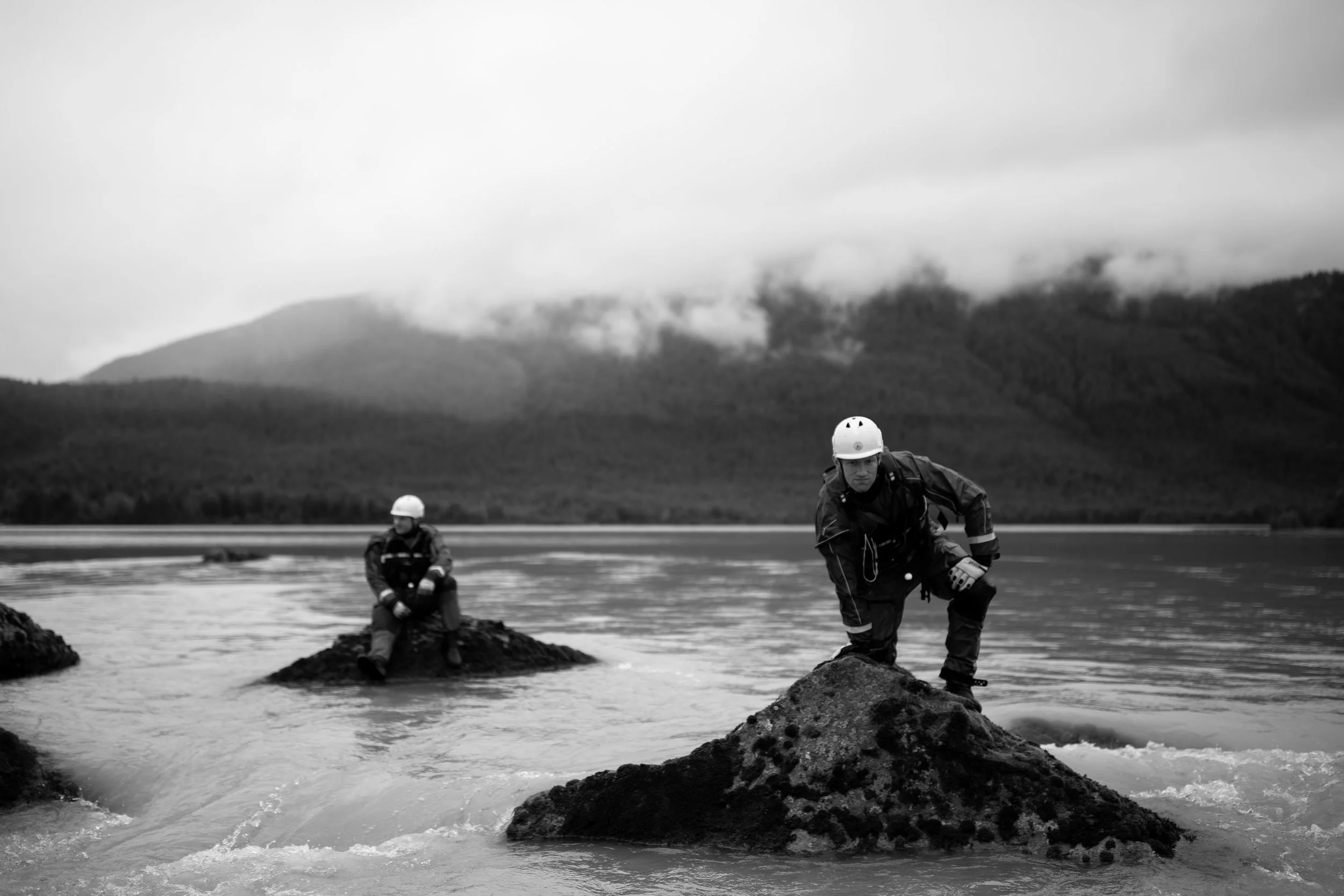Juneau Alaska is built on a narrow strip of land smacked up between the mountains and the water. It’s protected from the savage power of the Pacific to its west by Admiralty Island, which holds 1600 brown bears across its 1664 forested miles.
Juneau’s main road “Glacier Highway” starts at a small boat launch in a cove and stretches south for 45 miles before terminating at a trailhead. All connection to the rest of the world is from the air or the sea.
Downtown Juneau sits at the bottom of Mount Juneau. In the spring and summer, when it rains for days on end, big torrents of water bring slides of mud full of rocks and trees down on the houses sitting highest on its slopes. Avalanches follow these same paths and locals say that with enough power they could wipe out huge swaths of the town in one swoop. In the winter and spring strong “Taku” winds blow down the channel shaking cars and boats and snapping power lines with debris.
The firefighters have long said that a sustained blaze in a downtown building on the same day as a Taku wind will lead to an uncontrollable domino effect. The wind will gust the flame into an ever growing torch and set itself to building after building until the whole of Downtown Juneau is a valley of fire that blazes until nothing is left to burn between the mountaintop and the water.
If that day ever comes the 45 career firefighters and the 3 fire engines of the Juneau Capital City Fire Department will be no match. The department is well equipped for most individual structure fires that occur in Juneau’s buildings but they are not common. Most of the firefighters time is spent on medical calls, car crashes, water and rope rescues, and continuous training and preparation.
Career firefighters join the department with a basic qualification as a firefighter and an EMT, but this gives them only the beginning of the skillset of a competent firefighter. It also doesn’t guarantee the respect or reliance of others in the department.
Rookies then work to become certified as paramedics, capable of advanced emergency medical procedures like intubations, and engineers, capable of driving and pumping an engine when combating fire. They learn rope rescue skills, like rappelling down cliffs and lowering injured patients, and water rescue skills like operating boats in tight and dangerous rivers and swimming while keeping frantic exhausted rescuees afloat.
These skills take years of experience to master. They require eagerness, hard work, and dedication to continuous growth. Even harder to develop is the good judgment that allows firefighters to know when and how exactly to deploy those skills. The difference between the capabilities of a first year firefighter and a fifth year firefighter can spell life or death for someone in peril across many situations.
In 2004 Alaska abolished their pension plan for firefighters alongside many other public employees like teachers. Many pensioned firefighter positions across the USA are incredibly competitive. Candidates will find themselves facing off against dozens to hundreds of other applicants in proving competence and enthusiasm for the role. However Juneau’s recruitment opportunities have dwindled and the firefighters joke that if you want a job you just have to raise your hand.
The department used to have a one-year probationary period for new entrants (which many of the firefighters have said often bordered uncomfortably on hazing) with a long list of rules meant to make new entrants “earn their position.” These rules were posted in each station. The last rule read: “If you don’t love the job, give it to the next person in line.”
The probationary period is no longer taken seriously and new signs were printed with the last rule for new entrants changed to “Learn to love the job. It’s the best one around.”
Many of the pre-2004 firefighters, who retained their pensions, are still around in their last years before retirement. This has created a group of older firefighters that are hanging on to vest their significant benefits and a group of younger ones doing the same job but without them.
Since positions are no longer competitive, a firefighters incentive to grow and learn is purely based on their own internal desire. Some firefighters care deeply about their work while others do the minimum to skate by. This leads to patches of unvocalized distrust throughout the department with real admiration between some members and an unspoken disrespect for others. Mentioning certain firefighters names to others will result in an instant grimace whereas these same grimacers regularly trust other teammates with their lives.
This cuts across ranks. Competent and caring captains are seen as leaders and experts and followed with admiration. Others are seen as burdens who kill the morale of their teams. You can feel the difference when they walk into a room.
A hardworking and humble new entrant can earn respect quickly, but one that comes in with a sense of entitlement or ego is quickly dreaded. Either way they are here to stay. The department can’t afford to let people go.
The department is chronically short staffed and team members are constantly frustrated about being “mandoed” or required to work mandatory overtime. One firefighter estimated he made about $20k from overtime in a year, over a third of his salary. Because firefighters are not allowed to work directly with a romantic partner and there are several couples in the department, one schedule change or sickness can push last minute changes onto 4 or more people's schedules quickly turning personal problems into group problems.
Competent Juneau firefighters do have one path towards a pension and increased pay and benefits. They can leave.
Around their 5th year they can get a “lateral” and move to a fire department in Washington state. They immediately double their salaries and begin working towards a pension. Several competent firefighters have left over the last few years, taking their acquired skills and judgment with them and leaving their boots to be filled by a fresh new entrant - if the department can find one. .
Many of the pre-2004 firefighters, who retained their pension rights, are still around in their last years before retirement. This has created a group of older firefighters that are hanging on a little longer to vest their significant benefits and a group of younger ones who are doing the same job without the incentives.
On top of the lack of competition, the firefighters union seems to fight for members to make more money and to retain their jobs indiscriminately. The union pushes for as few repercussions as possible even in situations of significant abuse of power and inability to perform key job functions. Even scandals lead to demotions not firings.
Many older firefighters can easily prioritize “not dying in a fire” and having their last few years go as easily as possible. One line level firefighter described working with these captains like “having a substitute teacher for a day”.
This relationship with the union is confusing because it is the younger firefighters best voice to advocate for their own position but also unwaveringly supports those who have no interest in doing good work. Some younger firefighters are both active and engaged members of the union and also bemoan its actions in a variety of situations.
Line firefighters are also frustrated by a group of longtime fire chiefs (all of whom have pensions) that they describe as ignoring these significant issues and instead focusing on frustrating piddling requirements like an impending ban on wearing anything other than supplied uniforms in group areas, which would stop firefighters from wearing the sweatpants most of them currently wear in the fire station after 5pm on their 24 hour shifts.
The cost of a public ambulance ride in Juneau was recently increased by 40%, but the Firefighter/EMTs who run the ambulance received no pay raises. This did not go unnoticed
A contingent of firefighters across the ranks are pushing to have “minimum acceptable standards” for a variety of activities be accepted by the department. The idea being, whether you’re a captain or a rookie, if you are not capable of performing the essential tasks of a firefighter, like suiting up and throwing a ladder up against a wall in under 4 minutes (Excellent firefighters can do it in 90 seconds or less) then you either need to develop those abilities quickly or resign from the role.
Tourism runs almost all of Juneau’s economy. You can often see 5 massive cruise ships docked in its harbor at the same time. Each of these ships will spit out thousands of tourists into the downtown, often poncho covered against the continuous drizzle, to eat expensive crab legs and salmon, to buy Alaska native themed art, trinkets, and t-shirts from souvenir stores, and to climb onto busses for tours of the clear blue ice of the ever shrinking Mendenhall glacier.
Sometimes the department’s Ambulances transport patients that have become sick on these cruise ships to the local hospital, but most of their medical calls are focused on Juneau’s significant homeless and aging populations. Juneau is full of old people (~20% of the adult population is over 65) slowly losing their mobility and battling chronic illnesses. EMTs learn many of them by name as they return time and time again to carry them out of their houses and down the long hillside staircases for routine medical appointments or rush them off to the hospital multiple times as their conditions worsen and threatening symptoms come more and more often.
“Once you get depressed and give up, your body just goes and never comes back” described one EMT.
Homelessness is on the rise and EMTs find themselves responding to more and more calls about alcoholic detoxing, drug overdoses, mental episodes and physical assaults. Some firefighters estimate that they receive about 30% more medical calls overall than they did around 2017
A few firefighters believe the rise stems back to a 2012 fire that destroyed a large apartment building that contained most of Juneau’s cheapest housing. They say without that building many people who were struggling to stay off the streets slowly lost that struggle. But most of the firefighters say this is too simplistic. Many smaller towns around Alaska pay for struggling people to go to Juneau to visit a hospital or clinic, but once treated they can’t or won’t return to their town and instead will stay on the streets of Juneau perpetually. Firefighters say most of Juneau’s efforts have been focused on moving homelessness away from the main downtown area where tourists will see them, rather than on solving the problem.
On July 15th a homeless man known for his Husky “Juno” who never left his side was shot and killed by police after he drew a knife during an altercation that began with them investigating the assault on another homeless person the day before. It happened on one of Juneau’s busiest intersections, normally teeming with tourists.
Across Juneau the firefighters, on and off duty, were alerted by the medical tones sent out for an ambulance. Then group texts began buzzing.
“Was it “husky guy”?” they asked. It was husky guy.
They listened to the police scanners as the ambulance went “lights and sirens” rushing him to the hospital, and the paramedics aboard performed CPR.
“So he might make it?” I asked those I was gathered with. “With those medical codes no one ever makes it“ they said. “They do CPR, but he won’t make it.”
The vicious combination of the stripped pension and below-industry pay, the small hiring pool of a remote roadless coastal city, and a union that defends the competent and incompetent alike has led to a department that is slowly leaking hard earned essential skills and expertise to “southern” states faster than it can replace them. The standards and abilities of the first responders that Juneau relies on in life and death situations seem to be eroding deeper and deeper every day.
Despite these factors, I found incredibly hard working firefighters throughout the department, some with pensions and some without, motivated not only to do their job well and grow in their skills, but also to raise work standards and morale across the department.
During a conversation with two line level firefighters, both who are involved with the push for minimum acceptable standards, I postulated about a bleak future.
I had just sat through another outloading of frustration about a series of issues: Rookie EMTs who forge patients' vital sign readings after forgetting to record them. An overtime shift one of them had accepted expecting it to be served placidly overlooking the airport to make sure no jets fell blazing out of the sky (Firefighters on airport duty will wait for days without a single call) only to be transferred to the downtown station at the last minute where they would likely be up all night rushing rambling detoxing alcoholics to the hospital. The incident that supposedly originated the upcoming sweatpant ban - a female firefighter’s pajama shorts had evidently scandalized a city administration official who had stopped by the fire station one evening almost a year before.
“If things keep getting worse then eventually more good people will quit” I predicted “and as they go things will get even worse, more good people will leave, and then you will just see a spiral where only the people who don’t care are left”
To my surprise the firefighters pushed back.
“No, everyone will just be frustrated and when everyone is frustrated it’s a miserable environment to work in,” One said “But we won’t quit”
“We love this job” said the other “There’s nothing else like this. Getting to do this every day is so cool.””
They want to be firefighters and more so they want to be good firefighters. Their hope is that one day the Juneau fire department will both require and incentivize firefighters to be good at their job, and that they can be part of a culture of qualified and excellent firefighters which Juneau can rely upon in moments of need. The state and the union pulling in their own separate directions seem determined to undermine this in the name greater causes, and if either of them wins out it doesn’t seem to spell good things for Juneau’s future
Even if these firefighters can build the department of their dreams, they will be but a blip in the path of the fabled Taku-driven fiery apocalypse. But for the many real moments of life and death that Juneau faces over the coming years, I hope that the good people inside the Juneau Capital City Fire Department who give a shit find a way to win.
Career firefighters join the department with a basic competency as a firefighter and an EMT, but this gives them only the beginning of the skillset of a competent firefighter. It also doesn’t guarantee the respect or reliance of others in the department.
They then work to become certified as paramedics, capable of advanced emergency medical procedures like intubations, and engineers, capable of driving and pumping an engine when combating fire. They learn rope rescue skills, like rappelling down cliffs and lowering injured patients, and water rescue skills like operating boats in tight and dangerous rivers and swimming while keeping frantic exhausted rescuees afloat.
These skills take years of experience to master. They require eagerness, hard work, and dedication to continuous growth. Even harder to develop is the good judgment that allows them to know when and how exactly to deploy those skills. The difference between the capabilities of a 1 year firefighter and a 5 year firefighter is a depth of experience that can spell life or death for someone in peril across many situations.
